Storage unit investments are less expensive to buy or build than other rentable properties, require less maintenance, and are not governed by strict Landlord-Tenant laws. So, it makes sense that investors wonder, 'Are storage unit investments profitable?'
If you have ever asked yourself this question, look at this guide to learn just how profitable they are, how to buy a storage unit facility, and what it takes to manage these investments.
Self-storage unit facilities are places where people can rent a space to store their belongings. Often the facility rents the units on a month-to-month basis. However, some self storages offer more extended rental periods.
Storage facilities generally do not assist customers in packing, moving, or storing their items. Instead, the renter is responsible for moving their items into the space. After the occupant moves their things into the room, they can access the grounds using a gate code between certain hours.
The self-storage industry is robust and growing. More than 50,000 storage facilities in the United States total over 1.7 billion square feet of rentable space.
Each storage company offers different rates, unit dimensions, and types, but many of the most popular facilities include outdoor, climate-controlled units and space for vehicle storage.
Unlike many other commercial real estate investments, individuals make up a large percentage of the owners of storage properties. Additionally, many storage sites have living spaces, so owners or management can live on-site.
Before investing in a storage facility, knowing what types are available is essential.
Outdoor storage units are spaces tenants can drive up to and quickly unload belongings from their vehicles. These spaces come in different sizes but are typically larger units that house a few rooms or, at times, even an entire house.
Climate-controlled facilities are often interior spaces. They are accessible by a common exterior door and contain many internal units controlled by a central AC system to prevent weather damage.
These spaces are extremely popular in states with extreme temperatures, especially those with warmer summers. However, the cost to build and maintain these units is much higher.
Vehicle storage facilities offer spaces for renters to keep automobiles, large trucks, boats, buses, RVs, and other cars they can not store on their properties due to deed or space restrictions.
These facilities are more common in affluent areas where people own multiple vehicles. Although, they can be found near areas with many apartments, as well.
Mixed-use facilities offer a combination of two or more unit types and often include outdoor, indoor climate-controlled, and vehicle storage options.
Many owners build single-story storage buildings with units on the ground floor. These spaces are relatively inexpensive to develop and give renters easy access to unload and load their belongings.
In some areas, larger companies have started to construct multi-level storage buildings. These facilities often have several outside access locations and large elevators to make it easy for people to move belongings in and out.
Inside are typically dozens of various sizes of climate-controlled units ranging from closet-sized units to large rooms. The larger units are often on the ground floor with smaller units above.
Multi-story storages are most common in heavily populated cities where land values are higher, and they are usually located near areas with numerous mid and high-rise buildings.
There are substantial benefits to owning a storage unit facility unique to these investments.
No matter what state the economy is in, storage facilities are necessary. Many people own more possessions than they can fit or want in their homes and have to have somewhere to put them.
Furthermore, selling or storing their belongings becomes necessary when the economy turns for the worst and people must move out of their homes into smaller, more affordable places. So, storage companies often generate more revenue during an economic downturn.
Storage facilities have many spaces they can rent. So, even when a few rooms are unoccupied, they are still generating rental income. Furthermore, occupancy rates for storage units are generally high at over 90 percent, meaning most of the spaces bring in revenue for the owner.
The short lease terms offered by storage facilities mean it is easier for these businesses to raise or lower rates to compete with the market. Unlike apartment leases which lock the landlord and tenants into a specific rate for periods of 6-months to a year or more, storage owners can raise rates more frequently.
While there are laws that storage companies must abide by when renting spaces, they are not as stringent as Landlord-Tenant Laws. That makes these investments especially desirable in areas that require landlords to give tenants 30, 60, or even 90 days' notice to pay or vacate before filing for eviction.
Additionally, when a tenant does not pay a storage company, the owner does not have to go through a legal process to evict the tenant. They have to give the renter notice, post a public announcement that they intend to sell the tenants' belongings, and then hold a public auction.
When a tenant moves out of their rental space, the owner has to clean out a room which often requires no more than sweeping out the property and disposing of any items the renter left behind. The company does not have to store the person's leftover belongings or give them access to retrieve those items after it terminates their lease.
Unlike apartment owners, storage landlords do not have to paint, recarpet, and replace damaged appliances. So, the turnover cost is low compared to other rental properties.
Like all investments, there are some disadvantages to owning a storage facility. However, the penalties are few compared to apartment complexes, office buildings, and other commercial properties.
It is often impossible to prevent other investors from building storage facilities. So, there is a potential for oversupply. Furthermore, if renters have a choice between a newer facility and an older one, they are likely to choose the new option. That can mean that you are constantly competing with new storage developments.
If you choose to build a new storage facility, you may face construction delays and issues initially leasing the storage units. You will also have to compete with well-known facilities and companies many people trust in your area.
When you own and operate a self-storage company, you have to hire employees to run the business. Like any other business, hiring and managing staff can be a headache. Furthermore, storage company jobs are usually entry-level positions with lower pay, so the turnover rate may be higher.
Each time you replace an employee, you have to spend time interviewing candidates. You also must ensure your staff is trustworthy to prevent theft and other crimes against your renters.
You have security concerns whenever you own a business that stores other people's belongings. However, when it comes to owning a storage facility, you have to worry about people storing hazardous chemicals or illegal items, employees potentially using inside information to break into units, and thieves who may want to steal the contents of your storage spaces.
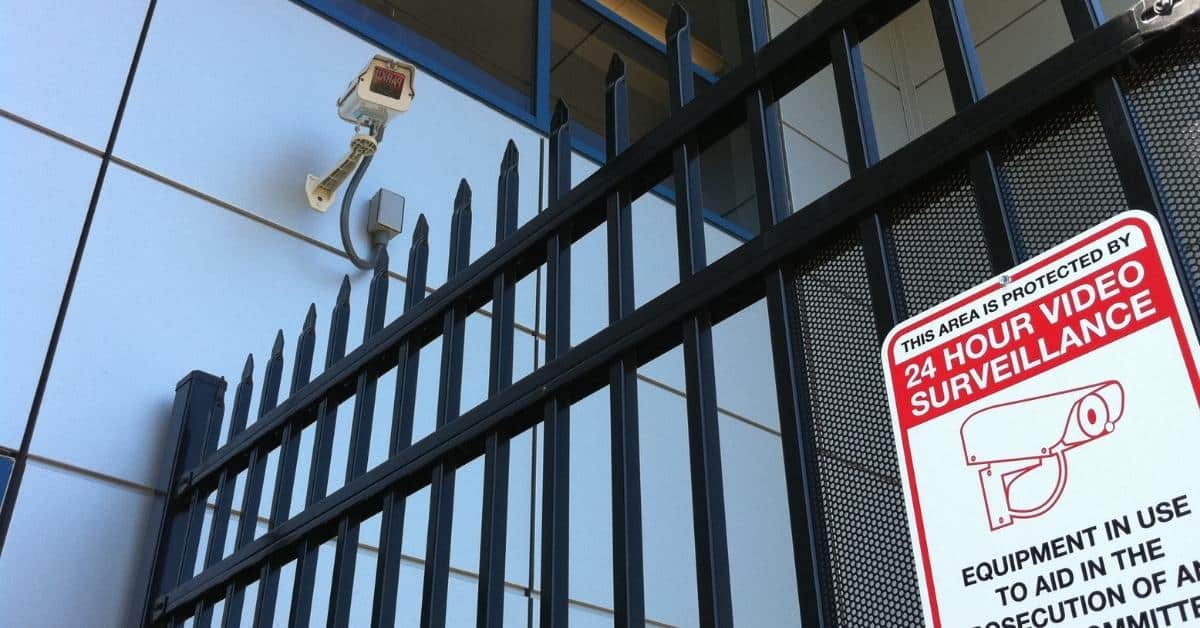
As a self-storage company owner, you are generally not on the hook for stolen property if you provide reasonable security measures. However, you may be held responsible if the thief is an employee or you do not have adequate security.
The initial investment required to open a storage facility is generally less than other rentable property investments. However, finding storage properties for sale can be challenging due to the excellent returns and low operational costs associated with these investments.
Buying a self-storage facility that is already built can be more costly than building your own. In most states, few of these properties are available, even in areas with numerous self-storage locations.

However, buying an already running storage business is a great way to hit the ground running. It will prevent you from worrying about potential construction setbacks, finding a space where zoning allows this type of business, and low occupancy at the start.
Building a facility is the best option for most investors who decide to give self-storage a try. Owners often value the sale of the business based on revenue and occupancy, so acquiring a property that is already operating often comes with a much higher initial investment.
The average size of storage facilities in the United States is around 56,900 square feet, and the building cost is between $25 and $70 per square foot of rentable space. The rentable area is generally only half of the total land space.
If you purchase a one-acre lot, you will have a total of 43,560 square feet, of which half can be turned into rentable storage space. Suppose you build a mixed outdoor and climate-controlled storage facility. The average price per square foot would be around $45.
So, if you build 20,000 square feet of storage space, you are looking at around $500,000 for the building. The price of the lot you build on is in addition to that, and the price will vary depending on where you buy. However, you can generally find an acre of land for between $20,000 to $100,000.
So, building a storage facility can be a better investment than buying a similar property with a sales price of between $1.5 and $2.5 million.
If you do decide to buy existing self-storage, you will want to do your due diligence to ensure the property is a good investment for the price.
If you are interested in buying a mini storage, you will want to check the current occupancy rates. Ideally, you want the occupancy rate to be above 80 to 85 percent, especially since the national average is above 90 percent.
Ideally, you want to position yourself in an area with apartments, condos, and tiny homes. These are the areas where people are most in need of storage space. However, any site with newly developed homes should be a good location for a mini-storage business.
There are more financing options than most people think to fund the purchase of a storage unit investment.
Hard money lenders offer to finance real estate projects that most traditional lenders do not. These are generally individuals or private banks with fewer requirements than commercial lenders. In order to get a hard money loan, you will need to use other assets as collateral, and the private or hard money lender may have additional requirements you need to meet like having business experience, showing plans for your business, and others.
If you do not have the credit or collateral for a hard money loan, you may want to consider selling private equity shares in your business. That means you will ask for an initial investment from each person in exchange for their owning a percentage of the company.
SBA loans are one of the best options for funding storage unit investments. Commercial lenders offer these loans and are backed by the U.S. Small Business Administration (SBA). You can use two primary SBA loans to purchase, build, or renovate a storage unit investment facility, the SBA 504 and SBA 7(a) loan.
If you have good credit and lengthy credit history, you may be able to qualify for a personal loan to fund your storage business. However, these loans tend to be riskier than other options because you have to guarantee them personally.
If you have a portfolio of investment properties or a home with substantial positive equity, you may want to consider a HELOC or cashout refinance to fund your storage facility. These loans are usually offered at a fixed rate through major real estate lenders.
If you are not in a position to foot the entire bill for a self-storage business, you have options. In fact, there are many opportunities to join in with other investors who also want to get into the self-storage business.
There are several reputable REITs that own and operate mini-warehouse storage facilities. Most major REITs are publicly traded. So, investors can buy shares in these organizations.

Most experts suggest purchasing these stocks early in your career and holding them until you are of retirement age to get the most out of your investment. While you are not a direct owner or operator, buying stock in storage REITs can lead to significant returns over the years.
If you want to buy a self-storage but lack the credit or finances to fund the entire purchase, you may want to look into real estate syndication or private equity shares. Investment groups often pool money together to purchase or build businesses through real estate syndication. Then, each investor owns a percentage of the investment.
Most loans require at least 20 percent down. So, for a $1 million loan, you would need a down payment of $200,000. However, with an SBA loan, you may be able to put as little as 10 percent down.
After you purchase or build your storage business, you need to market your business to ensure you reach optimal occupancy rates quickly. Here are some best ways to market your new storage unit investment.
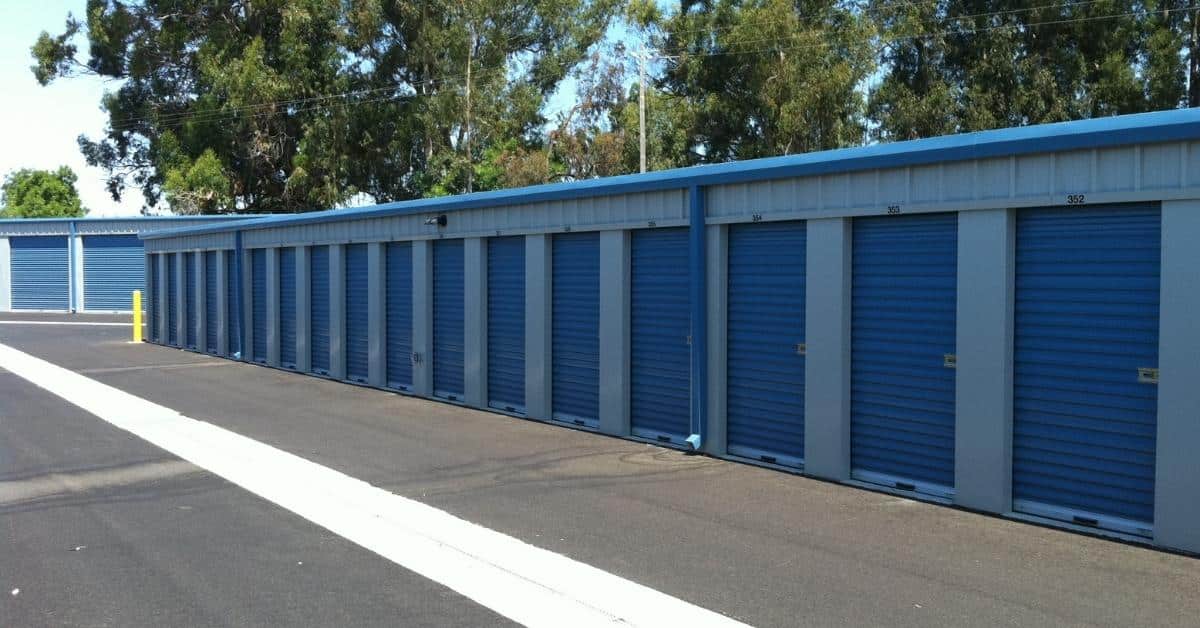
If you build your storage complex in an area with many new houses, there will likely be a lot of realtors and builders working in the area. Partnering with the people selling homes in your area is a great way to get the word out about your business and get your units rented quickly.
It might seem obvious, but offering discounts is another excellent way to get people to rent space at your property. If you are offering a bargain, you need to ensure that you can still cover your overhead and make a profit on each unit. Often storage companies provide a discount for the first month.
Client portals that make it easy for customers to rent units, access their accounts, make payments, and perform other tasks make your business more marketable and reduce the need for staff to handle these transactions.
Offering bundle deals that include moving blankets, boxes, packing tape, dolly rentals, other moving supplies, and storage space can also bring in new customers. After all, if someone only has to visit your location to fill all of their moving needs, they are more likely to use you.
Security features are a must for self-storage unit businesses. The more secure your location is, the more comfortable people will feel renting space there. So, you should consider things like:
Offering special discounts to large corporations in your area is a great way to rent spaces in a new storage facility. Additionally, clients who work for reputable companies are generally the kind of people you want as storage space rentals. They have money to pay their bill, and they are usually pretty responsible.
Selling moving supplies is an excellent way to add another revenue stream to your storage unit investment. Movers need these supplies. So, if they can buy them from you and rent their storage space, they are more likely to choose your facility.
Companies like U-Haul allow people with the space to rent their trucks for free. There is no need for an initial investment or buy-in, and you have the benefit of being listed as a U-Haul location on their website. So, if you are opening a new storage site, this is definitely something for you to consider.
Moving companies are an excellent resource for new storage space renters. It is relatively easy to get moving companies to partner with you if you are also willing to promote them to your customers.
Occupancy rates for self-storage companies are on the rise, and the national average sits around 92 percent. However, as a new facility owner, you want to aim for at least 80 to 85 percent occupancy.
Forbes estimates that between 2009 and 2018, the return on investment (ROI) for self-storage facilities was 16.9 percent higher than any other rental income business, including commercial, business, and apartment rentals.
The profitability of a self-storage company depends on the number and type of units it offers. With fewer units available, the revenue potential is less, and operating costs are about the same. So, the most profitable self-storage companies have a mix of indoor and outdoor units, with some being climate-controlled and space for vehicle storage.
These facilities can earn anywhere from $361,000 to $798,000 in rental income, and overhead cost is estimated to be around $250,000 with loan repayment and operating price. So, a storage unit investment can easily earn you $100,000 yearly.
Based on the increased occupancy of storage unit facilities across the nation, it is safe to say storage units are in high demand and will likely grow as the population increases in metropolitan and rural areas.
Considering the initial investment requirement and low overhead of storage unit investments compared to other rental properties, self-storage is an excellent investment in 2022 and beyond. Several factors will likely drive the market for these spaces in the future, like small home living movements, inflation, and other economic factors.
The average size storage facility is around 56,900 square feet. Rentable space typically accounts for around half of the total square footage, meaning the average storage unit investment facility has approximately 20,000 to 30,000 square feet of units.
Self-storage unit investments are one of the most profitable real estate endeavors you get into. Additionally, with the option of living on-site and managing the property yourself, it is a truly unique investment opportunity.
You need a sound business plan, around 20 percent down, and decent credit. However, a self-storage unit investment is an excellent idea if you meet the qualifications and are looking for a profitable real estate business.
If you need to remove tenants from your rental property, cash for keys is often a cost-effective and practical method. How can you use cash for keys to get a tenant to vacate a property?
Cash for keys is often less expensive and less stressful than the eviction process. In short, the process involves starting the eviction process (if applicable,) coming to a verbal agreement with the tenant, putting the agreement in writing in a legally binding document, and conducting a move-out inspection on the agreed-upon date. If the tenant holds up their end of the bargain, the landlord will hand over cash in exchange for the keys.
There are a number of different reasons that a landlord might choose to offer a tenant cash for keys. One common motivation is an effort to avoid the eviction process.

Four primary reasons why you might need to evict a tenant are:
Cash for keys is a legal method for getting a tenant to vacate a property that avoids the headache of going to court and dealing with the lengthy eviction process.
This approach can also be used if a landlord wants to sell a property and needs to fix it up before the sale. If there are tenants in the property, but they’d rather start renovating the property right away rather than wait until the end of the lease term, for example, a landlord could choose to offer cash for keys to incentivize them to move out early.
When you have a problematic tenant that has violated the lease or one that is remaining on the property after the lease has expired without your permission, you have a number of options. It’s essential to have a thorough understanding of landlord-tenant law in your state and local area to make sure that any steps you take are legal.
Eviction is the legal process for removing a tenant from a property, depending on where you are and the specifics of the case, eviction can take anywhere from a few weeks to several months.

Going through the court system to remove a tenant can be expensive and stressful. For many landlords with problematic tenants, this is an unideal option for a number of reasons, including the fact that the tenants are able to remain in the property for an extended period of time until the eviction process is complete.
The average cost of evicting a tenant, according to American Tenant Screen, is often several thousand dollars. This is the sum of legal fees, lost rental income, storage expenses, clean-out expenses, and more. Even if a landlord wins an eviction case, they can still be left empty-handed in terms of past-due rent and other expenses.
Cash for keys can be more straightforward, less expensive, and less emotionally taxing than eviction. This process involves offering a tenant a cash incentive in exchange for moving out of the property.

When a landlord has a tenant that is delinquent on the rent or a holdover tenant, it can seem pretty unjust to have to pay them to leave. However, it’s important to carefully consider which options are best for your financial health and overall well-being– you might find that forking over some cash is well worth it.
Move along to step number two if your tenant isn’t in danger of being evicted and your purpose in offering cash for keys is other than a lease violation, delinquent rent, or other evictable offense.
However, if your tenant is late on rent, violating the lease, or staying on the property without your permission after the lease ends, the first step is to serve a Notice to Pay or Quit.
This is a notice that tells the tenant that they need to pay the past due rent by a specific date or vacate the property. State laws vary in regard to whether you need to give tenants a chance to pay the rent they owe.
Are you wondering where the best places to buy rental property are in the US? Check out this list of top spots for rental investment.
Now you can approach your tenants to see if they are willing to make a cash-for-keys deal. Eviction can impact the rental history and credit report of a tenant so the cash-for-keys solution can be beneficial to both parties.
If a tenant isn’t at risk of eviction and you want them to vacate the property, you’ll likely need to offer a compelling amount of money for them to leave.
You’ll want to consider what the maximum amount of money you want to offer is and start with a lower offer to leave room for negotiation if necessary. You will want to be specific about the details, including the date they need to vacate, how much cash you’ll give them, and the required property condition to receive the full security deposit.
Once you and your tenants have worked out the details verbally, it’s time to put it in writing. This document needs to be fully compliant with state law; otherwise, it won’t be a legally binding agreement. It’s a good idea to consult with a landlord-tenant attorney to draft a binding and enforceable cash-for-keys agreement.
You will want to schedule a day and time to sign the cash for keys written agreement as soon as you have reached a verbal agreement. When you are meeting with the tenant, go over the terms of the agreement, including the move-out date, the cash payment, and the property condition you expect the rental to be in.
What is the value of your property based on the rental income you receive? This guide goes over calculating property value using rental income.
On the day that the landlord and the tenant agree upon the move-out date, an inspection will be conducted with the tenant present. The landlord can then determine whether any damage has been caused by the tenant beyond normal wear and tear.
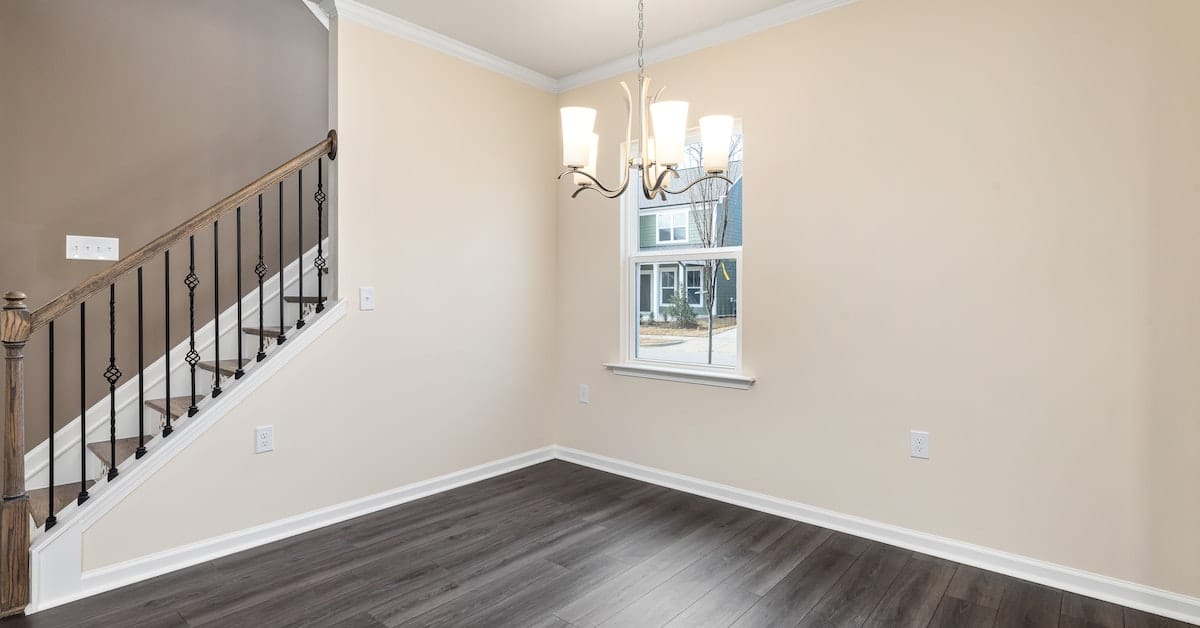
The landlord then provides a copy of the inspection report and pays the tenant the agreed-upon amount. Some landlords choose to pay the tenant when they sign the agreement, but it’s generally recommended to wait until the tenant has removed their belongings from the property and upheld their end of the bargain.
After the tenant moves out, you will want to change the locks as one of the first orders of business.
If you're thinking about offering cash for keys, one of the biggest questions in your mind is likely how much money you should offer your tenant.
There is no set rule about how much money tenants should receive when a landlord is trying to incentivize them to leave the property.
Here are some general guidelines you can use to try and figure out how much cash to offer:
When a tenant isn't paying rent, it can feel absurd to pay them to leave. However, it's important to remember to keep a level head and do the math on what is most financially beneficial to you. There's a good chance your best option is forking over some cash, fixing the place up, and finding better tenants.
Is it time for you to take a long, hard look at how the numbers stack up for your rental property? Be sure to check out our rental property calculators.
Owning and operating a rental property is a lot of work, and it can quickly become a full-time job as you build your investment property portfolio. At the same time, you might not be excited about the prospect of giving up a percentage of your rental income to a property manager. What does a property manager do, exactly, and is it worth the cost?
Property managers can take care of tasks like collecting rent, finding and screening tenants, dealing with tenant turnover, performing or hiring out regular and preventative maintenance, and dealing with repair requests. They act as boots on the ground in terms of the daily management of a property and communicate pertinent information to property owners.
Property managers can be either an individual or a company that a property owner hires to oversee and manage an investment property. There is a long list of responsibilities that property managers can take on, including setting and collecting rent, filling vacant units, handling maintenance requests, and dealing with tenant communications.

Whether you’re thinking about hiring a property manager for your rental property or you’re considering property management as a career, it can be useful to understand exactly what this role entails. Let’s look at some of the common tasks taken on by property managers.
Landlord-tenant laws and regulations can get complicated, particularly if you are an investor that owns properties in a number of different municipalities or states. The last thing you want is to deal with legal issues when it comes to your rental property, and hiring a property manager can help to mitigate that risk.
Each state has its own laws about things like security deposits, evictions, and other typical landlord issues. On top of that, many cities have their own regulations regarding the relationship between landlords and tenants.
Property managers are often better equipped to deal with the laws and regulations in their area than remote property owners, as they tend to be experts in the local area where they work.
Another important task of property managers is keeping the property in good shape, which involves both routine and preventative maintenance. Tenants are quick to up and move out of rentals that a landlord isn’t taking care of, and property managers can step in to deal with everything from lawn care and snow removal to HVAC servicing and gutter cleaning.

While some property management companies might have an in-house maintenance team or take on the tasks themselves, others hire out of the job.
If there are any repairs required, property managers will communicate the issue to the owner and, pending approval, schedule any necessary repairs. This might mean something as simple as light bulb replacement or something as extensive as HVAC system repairs.
Property managers use the requirements outlined by the owner (and local, state, and federal housing laws) to perform legal tenant screening.

Through this process, they find qualified tenants that are likely to follow the terms of the lease, pay rent on time, and generally take care of the property.
It also falls within a property manager's responsibilities to communicate important terms of the lease to tenants during the lease signing before they move in. As a part of this process, they’ll also inform tenants about what the consequences are if they violate the lease.
If you’re a property owner, it’s possible that a lot of your time will be taken up dealing with tenant complaints, particularly if you’re responsible for a number of units. Property managers can take on this task to reduce the burden on owners, promptly respond to complaints, and act as a go-between when necessary.
Prevention is key when it comes to keeping costs low for rental property owners, so property managers take on the task of conducting regular inspections. This way, they can identify anything that needs to be fixed before it becomes a costly repair.
Even when you have a strict tenant screening process, evictions are never completely avoidable. If they’re necessary, property managers can help deal with the legal aspects of removing a tenant from the property.
Property managers also collect rent payments as well as any other fees owed by the tenants.

These might include pet fees, storage fees, or late fees. Of course, they are required to follow all federal and state laws regarding security deposits, trust accounting, and other issues that relate to tenant funds.
Another major part of a property manager's job is communication with the owners. Considering the rental property is an investment, it makes sense that owners will want to know everything from income and expenses to vacancy rates and maintenance requirements. Property managers can even provide advice to owners about raising rent prices in the area, legal issues, or maintenance and repairs they believe are necessary.
Whenever a tenant moves out, there’s generally some sprucing up that needs to occur. This is the case no matter how well the previous renters took care of the place. In addition to collecting keys, refunding security deposits, and enforcing move-out dates, managers will inspect the unit, clean it, and restore it to rent-ready condition.
How much it costs to hire a property manager depends on a number of factors, including your location, the type of property, and the particular company or individual you hire.
That being said, the average cost is typically somewhere between six and twelve percent of the overall monthly rental income of the property.
There are frequently additional fees on top of the percentage of monthly income that you’ll want to know about. These can include:
It can be hard to part with your rental income as a landlord, but hiring a good property management company can be well worth the cost in some circumstances. This is particularly true as your portfolio grows, as being an owner can quickly become a second full-time job. Additionally, property management is absolutely key for remote rental property ownership.
Whether or not it makes sense for you to hire a property manager has to do with your particular situation. For example, hiring out property management is basically a necessity if you’re investing in real estate from a distance and is common for people that have expansive rental portfolios.
On the other hand, if you’re just planning on owning one rental in your hometown and you possess the skills needed to manage income-producing real estate, you might choose to keep your money in your pocket and take on the task yourself.
Of course, how hiring property management impacts your rental profit is another major factor. In order to view all of the most important investment property metrics in one place, you can use our rental property calculators to help you determine whether the cost of hiring management aligns with your financial goals.
Property managers are often responsible for a wide variety of tasks that are involved in overseeing residential or commercial rental properties, including finding and screening tenants, hiring repair and maintenance services, responding to tenant and owner communication, and much more. If you’re wondering how to become a property manager, this guide will go over the six steps between you and a job in the field.
In a nutshell, though, the requirements for becoming a property manager vary between states. While you typically only need a high school diploma to be a property manager, having a bachelor's degree or additional certifications can help you stand out if you are pursuing competitive positions. In most states, you will need to receive a real estate license or property manager license, but you can often work as an assistant property manager without a license under supervision.
If you are looking for a career that has a fairly low barrier to entry in a high-growth industry, you might be interested in property management. This can be a great role for people that are interested in real estate but would rather stay away from becoming a real estate agent.

You also might find that this is a suitable career path if you are hoping to become a real estate investor down the road, as it can help you learn the ins and outs of the industry, build a network of local professionals, and give you an advantage when it comes to finding underpriced real estate. Additionally, you might find that you learn about properties that are going to enter foreclosure before other investors.
Let’s look at what it takes to become a property manager to help you understand whether this makes sense for you.
In order to become a property manager, you will need to have at least a high school education. You’ll find that higher-paying and more competitive positions, however, require a bachelor’s degree or additional coursework.

Even if you aren’t required to take more courses beyond high school, you’ll find that you can set yourself apart from the competition by taking additional classes in business and real estate.
Depending on your state, you might also have to take property management courses before you are allowed to manage the commercial or residential property.
If you do decide to go to college, there are specific fields that are most useful for becoming a property manager. These include:
If you know that you want to be a property manager before going to college, choosing one of these majors can help you gain essential knowledge and skills that will help you get a job in the field and excel.
In some U.S. states, property managers are also required to obtain real estate licenses. This means that you’ll have to fulfill certain course requirements and go through specific steps to obtain a license as designated by your state.
Property management licensing or a real estate license is required in most states in order to become a property manager. That being said, it’s important to research the requirements in your state, so you know what the process will entail.
Even though you typically need to receive a license of some kind to become a property manager, it’s common for entry-level positions in roles like self-storage property management or apartment property management positions to be available for people that don’t have a license so long as they are working under a supervisor.
Some individuals choose to receive certification from the Institute of Real Estate Management, which involves completing ten courses, taking and passing a number of exams, and proving experience.
In some states, you will need to take and pass the real estate licensing exam in order to become a property manager. The reason for this is that there are a lot of tasks that you’ll be responsible for that involve real estate law. These include preparing leases and screening potential renters.

The qualifications for getting your real estate license are different in every state. If you are required to take an exam in order to become a property manager, you will also probably need to take a specific course as a part of the process.
If you want to make sure that you are well-equipped and highly qualified to get a specific type of property management job, you might consider becoming certified in other areas that are related to managing property. You’ll want to think about the type of property management job you are looking for when deciding about certification.
Some additional certifications that might be applicable include:
Receiving additional certification can help you stand apart from the competition when looking for a job.
Now it’s time to go out and get yourself your first job in property management. It’s generally a good idea to customize your resume to fit each job posting because the skills and requirements vary depending on the position. You can take this opportunity to outline any relevant education, coursework, or certifications while also illustrating how your experience fits with the skills and responsibilities of the job.

After you’ve applied for the positions that interest you, it’s a good idea to follow up a few days later if you haven’t received a response. This is a great way to show that you are excited about the position while also reminding the person responsible for hiring that you have the necessary skills for the job.
Another option is to seek a job working as an assistant property manager. This lets you work at the entry level and learn about the ins and outs of the industry. Not all of these positions require that you are certified or licensed, so this can also be a great way of getting a better sense of whether you want to follow through with the educational and licensing requirements.
Maintaining your certification might require that you take continuing education courses depending on your state and your position. This can be a good idea even if it isn’t a hard and fast rule– continuing education courses can be a good investment in your long-term career.
If you are interested in making money in the real estate industry and you’re exploring the requirements for becoming a property manager, you might notice that there is a lot of overlap between property management and being a real estate agent.
You are able to work both as a real estate agent and a property manager so long as:
Though some states have standalone property management license requirements, many simply require property managers to take the same courses and exams as real estate agents.
Before you jump through all of the hoops to become a property manager, you likely know what kind of salary you can expect. The average salary for this role is $54,565 a year, but there is a big range depending on your location, whether you own your own business or work as an employee and a number of other factors.
Again, the answer to this question is going to depend on your state. Some states let you manage a certain number of properties without gaining a license. As an example, if you are in the state of Florida, you have to have a license if you are managing more than ten properties.
Property management might not be a job that gets you rich quickly, but it might be worth considering if you are also interested in becoming a real estate investor. It’s an opportunity to work in the field and build a network of local professionals, helps you gain on-the-ground experience of the local market, and potentially gives you access to underpriced real estate before other investors.
Whether or not you become a property manager, investing in real estate can be a good way of creating another source of income, building wealth over time, and diversifying your investment portfolio. If you’re shopping around for a new rental or just trying to learn the ropes, make sure you check out our rental property calculators.
As a property investor, it is important to know the difference between hard money vs. soft money loans. Hard money loans are unconventional and given by private investors, whereas soft money loans are given by conventional banks and follow certain mortgage guidelines. However, those are not the only differences, and investors should know everything about hard loans before choosing that option.
To learn more about these two types of loans, read this guide. It covers the differences between the two, how to apply for each type of loan, and other valuable information.
Hard money and soft many loans are different in several ways. However, the most significant difference between the two is that a hard money loan is given through private investors, and you apply for a soft loan through a traditional bank.

Hard money lenders are usually quicker to foreclose. They may not strictly adhere to fair lending laws, and consumers may not have complete protection through the RESPA Act.
Banks secure mortgage loans with the property the borrower is applying to buy. Private money loans may or may not be backed by the property the borrower is purchasing. Instead, different types of collateral may secure a hard money loan.
In exchange for offering borrowers loans that other banks will not finance, hard money lenders may require higher down payments, shorter loan terms, and higher interest rates.
The down payment requirements are typically higher for hard money loans. However, that is not always the case, depending on what you are using as collateral and the other factors in your loan application.
It typically takes a lot less time to get a hard loan because the lenders do not follow the same underwriting guidelines as national lenders. The underwriting timeframes vary; however, you can get a private loan in as little as a few days, whereas conventional loan processing typically takes weeks or months in some cases.
The terms for soft money loans are typically much better. The rates are lower, the terms are longer, and they are less likely to have unfavorable loan terms like balloon notes and flexible mortgage rates.
Both hard and soft loans are secured. They both require that you provide documentation and pay associated fees. Either type of lender has the right to foreclose on the property securing the loan, whether that is the property you are financing or others.

Typically, when investors cannot obtain a loan through traditional channels, they may apply for a non-traditional loan that may allow the buyer to finance a property with a lower credit score, higher loan-to-value, and debt-to-income ratio.

With a soft money loan, you must go through a sometimes lengthy underwriting process before closing. Hard money closings usually take place a lot faster. Furthermore, you may apply for a private loan if you are trying to buy a cash property. If you are using other property to secure the loan, some private investors will provide the money directly to you so you can purchase cash homes, which you cannot do with a soft loan.
Applying for a hard money loan is different than applying for a hard money loan. You will need to provide different documentation. You may need to secure the loan with other property you own.
When you apply for a traditional mortgage loan, you have to provide the following:
If you are unable to provide any of the documentation above, you may be able to obtain a hard loan instead that does not require as much documentation. To apply for hard money loans, you need to find investors that offer this type of financing. You can usually find hard money loans through specific real estate brokers specializing in investment properties.
Hard money loans can be riskier than a traditional mortgage. Furthermore, private lenders are not subject to the same laws as other lenders. They may not follow rates other lenders follow, and they may charge higher origination fees for shorter loan terms.

Many hard money lenders use finance for three to five years with a balloon note due at the end of the loan period. Therefore, the borrower must refinance the loan before the end of the term, or they are subject to paying the balloon or forfeiting the property and all equity that they have built.
Due to private lenders requiring higher down payments, borrowers are subject to losing more money if they cannot flip or refinance the property before the end of the loan term.
Investors often need to use hard money loans when they cannot qualify for traditional financing. There are risks, but now that you know the difference between hard money and soft money loans, you can make an informed decision. A hard money loan may be just what you need to take your real estate business to the next level.
For example, a hard money loan may be your only option if you want to buy a house at auction or open a self-storage. However, if you can qualify for either loan type, a conventional second home or investment property loan is usually a better option long-term.
Knowing how to buy land in Texas is essential if you want to invest in the second-largest state in the nation. Texas has unique opportunities for land investors, but it also has real estate laws that buyers need to consider.
With so much land available, property types vary greatly depending on the region. The state's northwest region features plains and low mountains, while the southeast consists of flat coastal plains. Due to the contrast in topography, the elevation of land in the Loan Star State ranges from sea level to 8,749 feet above sea level on Guadalupe Peak, the highest mountain in the state.
Land attributes aren't the only factor you need to consider when purchasing land in Texas. You also have to know how to finance land, where to find properties that fit your needs, and what to verify before closing.
So, to learn how to buy land in Texas, look at our comprehensive guide with steps for purchasing your first piece of property, top land purchase and farming lenders, programs for buying a rural property, and more.
The Lone Star State contains approximately 172 million acres of land. It is home to King Ranch, the largest farm in the country, with 825,000 acres of agricultural-use land. It also has more farms than any other U.S. territory.
So, many people may think of a place to buy farming land, but there are many other reasons people purchase land in Texas. For example, it is a popular place for hunting leases, outdoor experience adventures, horseback riding, and investing.
The steps for buying land in Texas are similar to those you would follow in any other state. Review the steps below before you get started to better educate yourself on the process of buying rural land.
If you are buying a piece of property for a specific use, you need to ensure that the property is the correct size. If you plan to build a business, like a self-storage or mini-storage on the property or develop the land into a specific number of individual lots, you must account for that.
When building a shopping center, you need an acre per every 15,000 square feet of rentable shop space. A self-storage or small manufacturing business will likely require between two and three acres of land.
For farming, the Texas Land Board has land criteria a farm or ranch must meet for consideration under specific designations. For example, small farms and ranches operate on a property of 100 acres or less that has been producing crops for less than five years.
Suppose you want to use government grants to improve a piece of land for farming or for consideration in a specific government program that award benefits to Urban Agriculture and Innovation Production (UAIP). In that case, you must ensure your property fits those program requirements.
After determining the acreage you need, you are ready to set a budget. The budget should include at least a 20 percent down payment for land purchases. You also need to factor in costs for equipment and other necessities you will need for your land, depending on your use.
Next, you need to secure financing. Loans for residential real property differ from agricultural loans and typically require more of a down payment. However, several banks in Texas specialize in financing agricultural property and farming businesses.
A lender that focuses on land financing is an excellent place to start because they are aware of government incentives for first-time farmers and may be able to help you find a down payment assistance program or grant.
Other financing options you may be able to utilize for land purchases include:
After you receive a pre-approval letter from your chosen lender, you are ready to locate properties. At this time, you may want to start working with a buyer's agent who knows about land sales in Texas. However, you can locate properties on your own as well.
Lands of Texas and Land Watch are two excellent resources for locating land. Both have filters for owner-finance deals. Being able to find for sale by owner (FSBO) properties
If you still haven't hired a buyer's agent, you should before you make an official offer. The seller pays the buyer's agent fees in closing, so there is no reason not to work with a knowledgeable realtor.
Your agent will draft a purchase contract with the information you provide and submit it on your behalf to the seller's agent for consideration. They will also help to ensure that your closing takes place on time, and they will help you with determining whether or not a specific property is appropriate for your use.
Due diligence is a critical aspect of all land and real estate purchases. Due diligence for rural land includes having a title company do an exhaustive title search to determine land use and mineral rights ownership.
If the land is in an area that produces oil and gas, the previous owner may have sold mineral and surface rights to a drilling company years before they list their tangible land. Even if you do not care about acquiring the mineral rights to your land for the potential benefit of collecting on them if an energy company decides to drill for oil or natural gas. So, you want to know if anyone else has the legal right to access the land you are buying.
Even if you are buying a relatively inexpensive tract of land in Texas, you need to close at a Texas escrow office and request title insurance. Title policies are typically more costly for rural properties, especially if the title company has to send someone to the county recording office to check accurate property records manually.
Nevertheless, buying property without title insurance will leave you susceptible to heirship and common law claims in the future, as well as liens against the property for debts owed by previous owners.
When none of these options works, you may be able to get financing through the property seller. Several reputable land sites allow you to pull properties that list owner-financing as an option. So, finding these deals is more accessible than most people think.
A USDA loan might be a good option if you buy a rural property with a few acres and a single-family dwelling. However, to qualify, you must live in the property as your primary residence and meet low-income thresholds.
The Texas Veteran's Land Board is an incredible resource for veterans looking to buy land in Texas. It offers low, fixed interest rates and loans with as little as five percent down.
The Small Business Administration (SBA) offers loans for businesses to purchase land, improve properties, buy equipment, and other business expenses. SBA loans may require a lower down payment than some alternative loan options.
Private money loans are available through private investors. These loans often carry a higher interest rate. Some may be temporary, lasting a year or two just to give you time to find a replacement lender to finance the property on a long-term basis. If the rate is fixed during the initial period, there is typically a balloon payment.
If you decide to use a private money loan, be very diligent about finding a long-term lender as soon as you close. Putting it off could leave you in a desperate position at the end of the private money loan term.
A personal loan could be an option if your credit is good enough and you have a portfolio of solid assets. However, these loans are typically more carefully scrutinized by lenders because they are not secured by real property.
If you own a home with positive equity, you might be able to borrow against your equity to finance your land. Make sure you are comfortable with the payment and loan terms if you use a HELOC. You do not want to risk losing your primary residence.
For non-military rural investors, lenders like Texas Farm Credit can help you determine which product is right for you and any applicable grants you can utilize to purchase a property. They also offer loans for farming equipment and improvements, crop insurance, and other valuable financial products. Plus, they have a wealth of information about land in Texas.
You need to consider a few factors when purchasing a rural property. However, the exact information you need to look for varies depending on your intended use for the property.

Elevations change dramatically throughout the state, from sea level by the coast to more than a mile in the mountainous regions. The elevation is not a significant concern for some buyers. Still, if you need or want a property with a particular height, you must check topography maps to determine which properties fit your intended use.
Soil composition is a significant concern if you plan to farm or raise animals on your land. Some parts of Texas contain too much rock, clay, and sand to make growing crops possible. So, you must check the soil composition reports for a property before you buy it.
If you want to buy land in Texas because you are hoping to acquire mineral rights, you will need to look and have your title company pull a chain of title dating back to the last sale of mineral rights for the land. These properties are available in towns along the fault lines in Texas. You do need to prepare yourself to pay significantly more for a piece of land where the owner is willing to convey mineral rights.
If you want to develop land, you need to make sure there are no deed restrictions that prevent development. Most rural areas are restriction-free, but you must verify before buying. Otherwise, you might end up with acres of unusable land that may take years to sell.
Texas has always been one of the most desirable areas in the country to purchase rural land. The factors that make Texas land a good option include proximity to water, differing elevations,
Texas is the second-largest state in the country after Alaska. You can fit fifteen of the smallest states in the U.S. in the nearly 270,000 square miles that make up the Lone Star State. So, you should find a piece of property that fits all of your buying criteria.
You can find property in Texas with stunning natural features like waterfalls, creeks, rivers, lakes, caves, hills, and mountains. Almost every Texas property offers unique characteristics that make it desirable for people who want to own a unique property.
Proximity to a source of water is vital on rural land. With 150 major lakes in Texas and hundreds of smaller lakes, creeks, and freshwater rivers, you are never far from the water needed to grow crops or plumbing.
Rural land is just a short drive away, even in the most heavily populated urban centers. For example, there are dozens of small towns between Houston, San Antonio, and Austin. It only takes 2 1/2 hours to drive from Houston to Austin and 3 1/2 hours from Houston to San Antonio. Between these major cities, there are thousands of acres of undeveloped land.
When you buy a property between two or more large metropolitan areas, you have plenty of options for shopping and buying supplies.
Not only does Texas have an incredible amount of land, but there are opportunities for potential buyers to finance their purchase through the individual land owner. It is not uncommon for landowners to advertise owner financing on listings.
While land in Texas is an excellent investment, there are some things you need to keep in mind when you are deciding which property to purchase.
The quality of many schools in rural Texas towns leaves much to be desired by land buyers with families. Because the population is across the state, some small towns don't have a large enough population of school-aged children to make investing in education a significant priority.
Most of the Lone Star State experiences extreme weather occasionally. However, in the coastal region, storms are a significant concern. Some parts of the panhandle and towns on the Louisiana-Texas border are also at risk for tornados, hail storms, severe thunderstorms, and other undesirable weather events.
Most of the state also experiences blistering heat over the summer months and freezing weather during the winter.
The size of Texas and the remote location of some properties make it nearly impossible to access top-rated healthcare and public services. So, many people have to move to cities as they age because there is not a great network of hospitals in rural communities.
Many of the best properties in the state are $10,000 to $20,000 or more per acre. The locations where you can buy land for $1,000 an acre are close to the Texas-Mexico border, and there are significant safety concerns in some of these locations.
While it is great to have options, choosing an area to buy rural land in Texas can be challenging because there are so many places to look.
With so many plots of land available in Texas, if you want to sell your property, it will likely take much longer than selling residential property in a neighborhood. So, when you buy land, make sure that you love it.
When you are buying property in a state that is more than 50,000 square miles larger than France, it helps to know where to look for different types of land.

The least expensive land in Texas is in the far west region and the south plains closest to the Texas-Mexico border. You can also find low prices near the panhandle. In these areas, large tracts of land average less than $1,000 per acre.
There are several locations in Texas with breathtaking views. The west region of the state has picturesque desert plains and mountain ranges. The Hill Country is a gorgeous area in central Texas with varying elevations and numerous lakes.
Regarding value, the land closest to the major cities appreciates the fastest. If you want to invest in land that will appreciate, look for properties between two or more major cities. For example, there are numerous small towns with farms and ranches between Houston, San Antonio, and Austin.
There are also some desirable areas between Austin and Dallas. These are the best areas to purchase land because these cities will continue to grow. The land between those cities will continue to appreciate as the towns around them expand.
If you want to farm on your land, the Rio Grande Valley is an excellent place to grow crops like sugar cane and citrus trees. Central Texas is another desirable place for farming. Cotton, corn, rice, wheat, and feed grains, are the major crops in the region. However, many other crops are also grown there.
There are ranches throughout the state. If you want to raise cattle, the eastern half of the state provides more lush vegetation, reducing your feed expense. In the western region of Texas, the land is more suitable for goats, sheep, and smaller animals that can navigate rocky terrain.
Land near Texas' major metropolitan cities is in high demand for developers. You can also find properties with acreage in Houston and Dallas or a few miles outside the city limits. Any property close to heavily populated towns is suitable for development projects.
You can find numerous land deals around all of the large cities in Texas. However, buyers should check out a few small towns before committing to a property. Below is a list:
There are 327 hunting leases in Texas. However, the best properties for hunting leases are those with various games available. Deer and wild hogs are abundant throughout the state, but Menard, Hall, Kimble, and McCullock counties all have turkey, quail, small game, and exotic game.
In 2017, Veale Ranch, a 3,790-acre property located just 11 miles from downtown Dallas, sold for $95,000,000. The property is not the most expensive listing in the Loan Star State. However, the $25,000 cost per acre is staggering compared to other Texas land deals.
There are 3,359 miles of beachfront property in Texas. Hundreds of miles of land between major developed coastal cities. So, you can find decent deals on acreage in some areas. One of the most desirable beach communities to buy acreage is Crystal Beach near Galveston, TX, where land is around $10,000 per acre.
Back-to-back hurricanes leveled Crystal beach more than ten years ago, and many homeowners chose not to rebuild there. While there is a significant risk of storms along the Gulfcoast, if you are looking for a recreational property to ride horses or ATVs and get away from the city with your family, Crystal Beach might be an excellent place to look.
There are more than 150 large recreational lakes in Texas. Some offer waterfront lots or land, while others are primarily protected land with a few businesses. Some of the most popular lakes in Texas for home and land buyers are Lake Travis, Lake Livingston, Marble falls, and Canyon Lake.
Out of these, Lake Livingston and Canyon Lake both offer relatively affordable waterfront property. Both offer attractive water views, but Canyon Lake has beautiful clear blue water and freshwater beaches.
The far west border of Texas is home to Guadalupe Mountain Range, with breathtaking views. Some of the cities with mountain views are:

The price of acreage in Texas varies as much as the terrain. You can buy land for less than $1,000 per acre in the westernmost region near the Guadalupe Mountains. The average price per acre in the Gulfcoast part of the state is $11,675. In Harris County, the home of Houston, the state's most populated city, the average price per acre is $21,000.
Read the FAQs about buying land in Texas and the answers below to learn more about buying land in Texas.
The standard down payment for land purchases is at least 20 percent of the sale price. There might be higher limits for some loan products.
For veterans, Texas Veteran's Land Board offers loans with low fixed rates for as little as five percent down. SBA loans may also allow down payments of as little as ten percent.
In 2021, Texas's average cost of rural land rose by 29 percent. It is the most significant increase in the average price per acre in the state's history, bringing the cost up from $3,064 per acre to $3,954. However, properties in the state range from under $1,000 per acre to over $25,000 per acre.
Considering that the average per acre price has risen from $209 in 1971 to $3,954 in 2021, investing in land in Texas is a sensible decision.
There are around eight 5,500 square-foot residential lots on an acre. However, to build a small community, you must factor in space for driveways, roadways, and infrastructure.
The cheapest land in Texas is on the southern and west borders. Sierra Blanco offers numerous 20-acre tracts for less than $20,000.
Texas is an incredible place to live, and buying land in the Bluebonnet State is a sound investment decision. Last year the average price per acre increased by 29 percent. That means, that if you invested $100,000 to purchase land in Texas, in 2020, your property could be worth tens of thousands more in just one year.
There are still a few desirable places where you can purchase land for great prices. However, you shouldn't wait long. While there is no shortage of land in Texas,
Many investors want to know how to become a landlord and manage rental properties because it is an excellent way to invest in tangible assets that generate income monthly and gain significant value over time.
There is not a specific five-step plan for entering the real estate realm. Each landlord takes their path with different property types, income opportunities, locations, and strategies.
However, all successful landlords need to know how to acquire homes, and have a skill set that helps them manage money, identify valuable rental houses, maintain properties, screen tenants, execute legal documents, and care for their investments. They also tend to have a network of qualified insurance, real estate, legal, and construction professionals they work with periodically.
In this guide, you will learn the steps to find and finance your first investment home and what forms, laws, and contacts you need to know before you start managing your first house. Keep reading for all this and insider tips to help you get off to a great start when you become a landlord.
Being a landlord sounds like a dream job for most people. After all, real estate investments almost always gain value over time, and even if they don't increase before you sell them, you still have a property you can use as collateral to fund other loans, or you can utilize the sales proceeds to live a more comfortable retirement later in life.
Nevertheless, managing a property, dealing with tenants, making profitable property buying choices, and local and federal laws governing landlords can all be very stressful. You are legally responsible for maintaining each home you rent in 'habitable condition.'
Real estate markets can also be unpredictable, and with new properties being built all the time, you are always in competition with larger, more contemporary, and more luxurious properties. So, you may need to utilize several marketing tactics to rent your units.
Being a landlord often requires a lot of patience, and it may take years to start making positive rental income. So, you must commit to it if you are serious about managing properties and owning long-term rental property investments. Initially, it may seem a bit overwhelming, but with a good attitude and strong work ethic, being a landlord can be an exciting career or hobby that leads to consistent future income.
Landlords do not need a license to buy or rent their properties. If you choose to hire a property management company, the company needs a licensed real estate broker on staff.
However, you can hire a property manager to work for you directly, and they do not need a real estate license as long as they work for you, and you are the homeowner. That does not mean that it is not valuable for real estate investors to have some professional property management experience or training.
Becoming a landlord is a process, and wise investors do things the right way, so unexpected problems do not arise later.

One of the most important things you should do before you become a landlord is to prepare yourself for everything the job includes. That means you want to have your finances in order, and you must ensure you have enough time to handle your property investment.
Many new landlords start buying homes while working at other jobs. If that is what you intend to do, it is possible. However, you must manage your time carefully. Also, there is a potential that a tenant will call you, and you would need to respond immediately, which is usually something employers frown upon.
If you are still working, you may consider hiring a management company after you buy your first home. That way, you can focus on your day job without neglecting your property investment.
Otherwise, you should consider designating someone else who is available 24/7 to take emergency calls from tenants or handle other situations that unexpectedly come up.
Landlords own many property types, from single-family homes to multifamily apartment complexes. Some property investors even choose to become a landlord by purchasing multi-family homes. Multifamily homes or duplexes are a great idea because the owner can live in one of the units and rent the rest reducing their housing expenses.
After you work out how much time you will spend managing your rental properties, you will need to apply for financing to see if you qualify to buy your first investment.

Conventional financing is available to credit and debt-to-income qualifying applicants through most major lenders. These loans require a 20 percent downpayment, but most lenders do not require mortgage insurance on conventional loans, which saves borrowers significantly.
Lenders give investment loans for buyers borrowing funds to purchase commercial properties, like:
They are typically secured by a first lien mortgage like other non-commercial real property loans. However, these investment mortgages can include terms much different from most home loans, like early payment penalties, early payment lockouts, guaranteed interest payments, and hefty upfront and yearly origination fees.
Investors who own other real estate assets or a primary residence with positive equity may be able to obtain a HELOC. If you decide to use a cashout mortgage, you would only have a mortgage on the home you borrow against.
FHA offers multifamily home funding options with lower origination fees and more favorable loan terms. However, these products often require the borrower to pay for mortgage insurance until the loan-to-value (LTV) ratio is below 80 percent. Mortgage insurance can add high costs to your monthly mortgage for years.
When buying properties for rental investments, you want to acquire homes that are of good value. The closer to ready it is, the quicker you can rent it out. So, finding properties that are as close to move-in ready as possible for your first few deals is a good idea.
If you are using cash, home auctions are an excellent option. They often offer houses for less than market value. However, the auctions are very competitive, and there are strict guidelines bidders must follow.
Most areas have a Multi-Listing Service (MLS) with a database of properties for sale. The MLS also gives realtors access to critical information, like documents the seller's agent uploaded, property ownership data, photos from past listings for the property, and more.
By-owner home listing sites can be a valuable tool for new property investors. The postings on these sites are by a homeowner, and often these owners are looking to get out from under their loans quickly. They may even have a short sale approved through the lender. Property owners listing on these sites may allow you to assume their existing mortgage or consider seller financing the property.
Real estate wholesalers are professionals who find properties for investors and property developers to buy. The wholesaler signs a contract with the seller but includes an 'assignment clause' that says the buyer can assign the agreement to another party.
The wholesaler makes a commission off of the transaction in closing. Usually, the fees are less than $5,000, but they are unregulated. So, a mortgage wholesaler can charge whatever the buyer is willing to pay in most areas.
After you become a landlord, the real work begins. You must ensure your property is ready for new tenants and address any existing maintenance or tenant problems.
Cities and states usually have housing codes that landlords must follow. Property codes give an overview of what the local government expects from landlords regarding property livability. Some areas with extreme temperatures require landlords to ensure the heating or cooling system is in good working order.
If the landlord does not adhere to local housing codes, the local government could charge them a hefty fine.
Upgrades, like new bathroom and kitchen cabinets and countertops, can bring a lot more money to your investment and make it quicker and easier to rent. If tenants are living in all of your rental units, you should complete necessary upgrades to keep your property marketable each time a tenant vacates their unit.
Learning to manage properties after you become a landlord takes time. The longer you do it, the better you will become. However, when you are starting, make sure you:
There are many legal forms that landlords need to have to conduct business properly. These signed forms must be kept in on-site or encrypted digital client files.
The lease agreement is the contract that outlines what you will give the tenant and what you expect from them in return. These forms can often be downloaded for free.
The law requires the landlord to provide an addendum to the lease that covers each term of the landlord-tenant agreement that is not covered clearly in the lease. Each addendum must have the tenant's personal information, the property address, and the date, and both the landlord and the tenant must sign each.
Many landlords use numerous addendums and disclosures to document policies covering:
You may need all of these or just a few. However, you must create an addendum for each relevant topic for your agreement. Additionally, landlords in the United States must notify tenants of lead paint's potential hazards if the rental unit was built before 1978.
Other pest and area-specific addendums may also be necessary. So, it is a good idea to check Tenant-Landlord Laws governing your property to ensure you comply.
Even if these appendices are not required by law, you should include them for the tenant to sign with their lease. It offers some protection from erroneous discrimination lawsuits.
When it comes to landlord-tenant legal cases, the burden of proof lies on the landlord. If you do not have documentation that a tenant agreed to a specific term in writing at the lease commencement, a judge will almost always side with the tenant.
A letter of notice is just an officially titled document notifying a tenant they violate their lease, their lease is ending, the terms of their lease are changing, there will be a change in ownership, or the landlord is requesting the tenant vacate the property.
You can use a general form for all your notice letters covering all matters or a different one for each notice type.
While you can use your general Letter of Notice to give notices to vacate, you need to ensure that you provide the required time necessary to state and federal laws in your jurisdiction.
Many states only require a 3-day notice. However, some like California make landlords give 30 days unless a tenant assaults another tenant, causes significant property damage due to malice or negligence, or is committing a crime that endangers other tenants.
After a tenant leases a unit for more than a year, you must give them a 60-day written notice to vacate, and for some tenants with housing benefits, you may have to provide a 90-day notice before you can even file an eviction lawsuit.
If you do not allow the tenant the required time, the judge will make you reserve the notice, meaning the clock will start over.
Each time a tenant moves in, you should ask them to fill out a tenant checklist to make a note of any damage. You will then give the tenant a copy, and you will retain a copy for your records.
The checklist is essential because it tells you as a landlord what you need to repair in the unit and if anything was damaged before the tenant moved in. When they vacate the unit, you will go through and check for damages and compare anything you find on the inventory sheet to determine if the damage was there before the tenant moved in.
When you go through the property after the tenant moves out, you must take note of everything needing repair. If You can then deduct those repairs from the deposit. However, you will want to list each deduction on the Security Deposit Deduction Itemization and send it to the former tenant with a refund for the remainder of their deposit.
Becoming a landlord is a huge accomplishment that will benefit you in many ways for years. Check out some benefits of becoming a rental property investor to see if it is a career you want to pursue.

As a landlord, you purchase homes or rental properties that you will manage for some years while you collect rent payments. Your rent payments may not exceed maintenance costs, mortgages, property taxes, or other related homeownership expenses until you repay your loan. However, as tenants occupy the home, they are essentially paying off your mortgage. As your rentals are being paid off, you will gain equity.
In the last year, house values have risen by 20 percent, and over the last ten years, the average value increase nationwide is 48.6 percent. That means if you purchased a $100,000 house ten years ago, it is worth close to $150,000. If you own multiple properties, that value increase can add up.
The increase in value means you likely have significant equity in your property portfolio, which you can use to fund more significant deals. You can also use the equity to gain construction loans you need to upgrade your homes, or you can sell your portfolio when you retire to give yourself a more comfortable financial outlook later in life.
Even if you own a few properties, long-term real estate investing can give you peace of mind that even if your other income streams stop producing income, you will still have rental property income to get you through.
Property investors have the opportunity to build significant wealth during their lifetime. Just imagine you start off buying a house every few years. By the time you retire, you may have a portfolio of 15 to 20 homes that you paid less than $100,000 that are now worth $300,000 each.
In that case, you have a portfolio worth $3,000,000, and your initial investment was between $750,000 and $1.24 million. Suppose you also collected rent on those 15 units over the years. In that case, you should be in a reasonably comfortable financial situation and be able to mentor your children and grandchildren to follow in your footsteps.
Most property managers who only own one or two lease homes have to work a corporate or day job and manage their rentals in the evenings and on weekends. Depending on your financing situation, tax obligations, and any maintenance or upgrades the properties need, it could take you years to see positive rental income.
However, if you manage your portfolio correctly, you can make property investing a full-time income source and be your boss.
Property owners are always on call in a sense. However, emergencies will be few and far between in most rentals, giving you the ability to structure your schedule in a beneficial way.
Like any job, there are cons to managing real estate. Ultimately, you must compare the pros and cons and decide if buying rental homes is a good fit for you and your long-term investment goals.
Maintaining your property is extremely important. It is your job as a landlord and property owner and a legal requirement in many areas. The city can fine you if you fail to keep your property in code. Tenants may have recourse to take legal action against you or withhold rent in some instances. 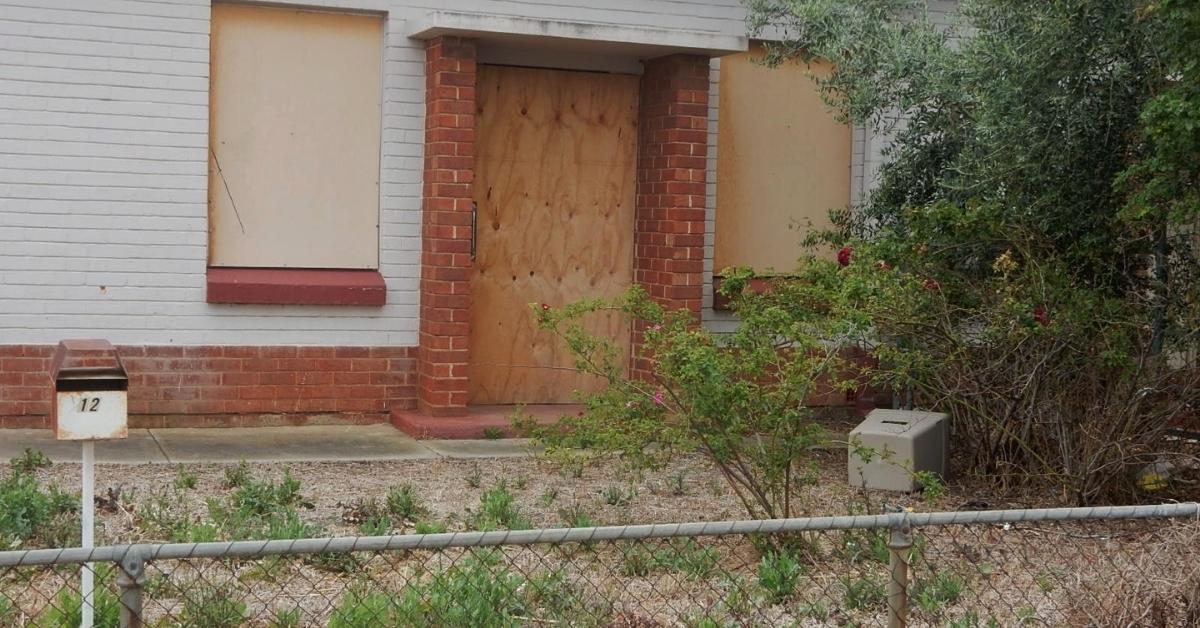
It does not matter if you invest in luxury homes or affordable housing. Tenant issues will come up. Whether one of your renters is partying into the night while another tries to sleep to wake up for an early shift or there is a major pipe leak, you are the person your tenants will count on to solve the problem.
You will likely be the first person they contact, and they will want you to have all of the answers right away. You may also have to deal with volatile domestic relationships between tenants and feuds between neighbors.
Then, some renters won't pay or cause significant property damage while leasing your space. Regardless, at some point, tenant issues are something every landlord has to learn to navigate lawfully and diplomatically.
There are numerous reasons that an occupant can file a lawsuit against their landlord. So, you must follow state and federal landlord guidelines and keep a paper trail of all agreements you make with your tenants.
Having documentation to prove your side of things if you are ever involved in a landlord-tenant lawsuit is vital. Without signed documents showing what the tenant agreed to, a judge will almost always rule in favor of the renter.
To find out the regulations you must abide by in your state, check your local Landlord-Tenant Laws. It would help if you also familiarized yourself with Fair Housing Laws to comply with federal and local regulations.
Learning how to become a landlord and manage properties is a.
In most states, property managers who show and sell or lease property must have a real estate license. However, if you are managing your properties, that is not the case. You can show, rent, and own real estate without a license, as long as you are not showing units for other property owners.
Your return rate may be low when you first get into rental investments. Unless you are purchasing cash properties, the key to rental home investment is to keep them occupied and generate enough income to cover the ownership and mortgage obligations.
That means you will need to set rent prices high enough to cover the mortgage, insurance, taxes, and routine maintenance. You also want to generate at least $150 to $200 above your overhead for each property you own.
However, you should put those funds in an account to cover significant repairs or apply the additional money towards your loan principal.
You need to pay off your mortgage if you want higher returns more quickly. Sending an extra payment will help to reduce the length of your mortgage and the overall interest you pay for the loan.
Under the right circumstances, rental property is always a good investment. It offers a monthly revenue source, potentially huge property value gains, and assets you can use to live in or invest in future projects.
You always have to way the pros and cons to determine if you have the skills, time, and finances to make owning a rental worthwhile. However, if you decide to become a landlord, you should know you may have little to no income from your rental for years.
However, if you manage the property correctly, your tenants' rent should pay for the mortgage, maintenance, and significant repairs. If you build a portfolio of rentals, you should have most of them paid off by the time you are ready to retire and be generating significantly more positive cash flow.
Additionally, your property values will likely be at least 50 percent higher after 20 to 30 years. If you have the property occupied for most of the life of your ownership, your tenants will have nearly paid for the entire cost of buying your rental properties.
There are many ways to start investing in real estate, and the method you prefer will likely depend on how involved you want to be with maintaining and managing properties. For example, suppose you are confident in your business management and customer relations skills. In that case, you might make a good landlord.
If you want to learn the business while enjoying the security of a full-time job, you might want to start a real estate investment group (REIG). Anyone can form an REIG with other investors. After creating the group, you buy, sell, rent, and manage a portfolio of homes together. So, it takes some of the responsibility off each party.
When you start in real estate, it is a good idea to surround yourself with a knowledgeable team or at least a couple of people who know the ins and outs of the business. Real estate mentoring is pretty standard, and a professional with experience and contacts is an asset for beginners in real estate investing. For that reason, many people get started in real estate investing by finding a mentor.
Landlords must pay the property mortgage, taxes, maintenance fees, marketing costs, real estate commissions, and other business office expenses. The cost of being a landlord differs for each property.
Becoming a landlord is a lot of responsibility, but the effort is worthwhile. It will give you valuable assets that produce income you can live off when you are no longer working. If you no longer want property management responsibility, you can sell them for a hefty nest egg.
The sooner you start investing in rentals, the quicker you can pay them off, and the more properties you will be able to add to your portfolio throughout your life. After you purchase your first few properties, you will have plenty of experience to expand your rental home inventory. You will also be able to use your portfolio's positive equity and rental performance to fund other property deals.
Apartment complexes can be a huge revenue source. So, it makes sense that investors wonder, 'How much does it cost to build an apartment complex?'
The truth is, there is no clear-cut answer to that question. The total investment price depends on the location, floorplans, materials used, number of units, amenities, and other factors.
So, we created an in-depth guide that includes building cost per square ft, unit, property type, and complex size. Keep reading to learn everything you need to know to estimate the price of your complex, finance the project, and make your multifamily property a successful investment.
The average cost to build an apartment complex depends on numerous factors like land value, number of floors, unit sizes, property type, and more. However, the median size of units built in 2021 was 1,032 sq ft, and only 2,000 out of 12,000 complexes had more than 50 units.
At the national median of $398 per square foot, a 50-unit high-rise will start around $20 million.
You have probably figured out that many factors impact the cost of constructing a multifamily apartment complex. Knowing these factors and how they affect prices can help you better understand why complex construction costs have such a vast range.
The location where you plan to build will significantly impact the cost of land for a multifamily complex. For example, an acre of land centrally located in New York City costs around $123 million. The average price per acre of land in Miami, FL, is $4.4 million. In Houston, TX, you can buy an acre of land in the city for between $200,000 and $1.5 million.
So, the building location will have an impact. If you want to build an apartment complex in a major city, you can expect to spend between $150,000 and $123 million for a piece of land big enough for a multistory building with 50 to 100 units.
Permits are an essential factor when you are developing property. The cost to obtain the proper permits can be tens of thousands of dollars, depending on local building regulations. Some cities require developers to pay 'impact' fees, which also adds to the cost of pulling permits.
Additionally, you may need to re-pull permits each time you change your building plans. You will also need to file zoning permits if you plan to subdivide lots or combine lots with multiple locations into a single property.
Affordable housing units are much less expensive than luxury apartment homes. The average cost to build affordable multifamily dwellings is $164 per square foot, while the average price for high-end housing is $398 per square foot.
Material and labor costs differ depending on your region, which is why builder price per square foot costs vary significantly from state to state. The fluctuations in building costs correlate with the availability of materials and workers.
Material and labor prices are at an all-time high. Prices dictated by lumber, steel, concrete, and other industries that supply building materials change frequently.
Furthermore, more people borrow for residential and commercial real estate deals when interest rates are lower. The more developers there work on projects, the fewer materials, and laborers available.
That drives the prices even higher. However, due to inflation, eviction rates are rising. With interest rates on the way back up, fewer developers are borrowing for new projects, so the cost of building supplies will likely decrease in the coming months.
The architecture fees cost between 5 and 20 percent for apartment complexes depending on the complexity of the design, design changes, the frequency you work with the firm, and the overall building costs.
The cost of hiring an architect
In addition to the building, materials, and land acquisition costs, you must factor in property insurance and legal and accounting fees. These are charges for items that you pay for outside of closing. Other items you should include in your additional fees include decorations, furnishings, gym equipment, and other things you will need to prepare this property for tenants.
If you are using your property portfolio to fund this venture, it is critical that you ensure you are giving up equity for a profitable return. If you are planning a smaller apartment project with fewer units and mortgage rates are higher, it might be challenging to squeeze a profit out of the deal.
Therefore, you would likely want to look for other areas or projects to invest in rather than your positive equity.
Occupancy rates are critical when you are investing in apartments. If you are using a construction loan, you may need to convert to conventional investment financing, and occupancy rates can impact origination fees and loan-related charges.
Currently, top-tier complexes are seeing lower tenant retention and new lease rates. So, you can expect your high-class apartment complex to take longer to reach good occupancy levels, at least for the last quarter of 2022 and the first quarter of 2023.
With longer waits to reach profitable occupancy rates, you may not want to invest in a high or mid-rise at this time.
Knowing the cost per square foot for your property development is a huge help when estimating building costs. Unfortunately, like all other building-related expenses, many factors impact per square foot prices.

Average development costs for luxury units are more than double the price per square foot. The median cost per square foot for high-end properties is $398.
The average nationwide cost for building an affordable living complex in 2020 was $164 per square foot. However, the current median price per square foot is likely closer to $180 to $200 for budget-conscious communities.
Determining the construction cost per unit is relatively straightforward if you know your area's price per square foot rates. For example, if it is $350 per square foot, you can use the median unit size built in 2021 of 1,032 square feet to calculate the average price for each unit, which would be $360,850.
Then, you can multiply that figure by the number of units you plan to build to get the cost for the entire project. So, for a 20-unit construction, you are looking at $7.2 million.
The cost of developing a multifamily building goes up with each additional floor. However, you can attribute some of the increased prices of high-rises to top-tier properties that usually feature upgrades, amenities, and larger living spaces.
An infill complex is one built on a previously occupied lot in an urban area. Since these complexes have to fit on a standard or a slightly larger lot, they often provide fewer apartments and just a few stories.
These complexes are typically more affordable, though. The median building cost for infill properties is between $90 and $190 per square foot. So, if you can fit ten 1,000-square-foot units, the high-end development cost is around $2 million.
Infill complexes tend to utilize lower-grade materials. However, these properties are smaller and take less time to build, meaning you can lease the units sooner.
Additionally, infills are in urban areas, with more potential tenants. So, reaching acceptable occupancy levels is not as challenging as it can be with a multi-story property with 50 to 100 units.
Low-rises are slightly higher than infills in construction cost at $156 to $250 per square foot. So, a 10-unit low-rise with 1,000 square foot homes will cost between $1.5 million and $2.5 million.
Construction costs start to climb when you are developing a midrise. The price per square foot is between $190 and $290. So, a 1o-unit mid-rise can cost between $1.9 million and $2.9 million. The higher per square foot considers that mid-rise developers typically use higher-grade materials.
These
Any building with more than 12 stories is considered a high-rise. The taller the building, the higher the price per square foot, but the median cost ranges from $300 to $550+.

High-rises contain between 4 and 20 units per floor. So, a 13-story high-rise with four units per floor would include 52 individual apartment homes.
If we use the average rental size of 1,000 square feet, the total cost to build a high-rise would be between $15.6 and $30 million. Additionally, you will likely need the ongoing support of a building engineer and architect. Non-architectural and
As the property developer, you can choose what company to build your rental building. Some commercial builders focus exclusively on multifamily developments.
New innovative companies are also using lower-cost sustainable building methods to construct multifamily properties quicker and for less money.
An Austin, TX company called Juno is completing several apartment projects using their cutting-edge methods, and the founders are hoping to change the multifamily construction industry with their ideas.
Working with a builder that offers unique property development solutions that are less costly could be great for marketing your complex and lead to higher building occupancy initially.
Whether you work with an experienced traditional commercial builder or a new company offering diverse building options, you need to ensure that they have the correct licenses and that the company is bonded and insured.
The larger your complex, the harder it is to manage. A building with 100 units takes longer to reach a good tenant occupancy level.
So, whether you are new to real estate investing or just interested in expanding your portfolio with a building that generates rental income from multiple units, you may consider a smaller project to start.
Building costs for low and mid-rise buildings are cheaper per square foot, and they still offer the ability to construct multiple units under the same roof.
It is als
Apartment development can have impressive investment returns with favorable timing and other factors. However, large-scale multifamily investing is not for everyone.
Here are a few other investment opportunities that will likely cost less and present significantly less risk.
Even high-rises go into foreclosure from time to time. If you want to invest in a residential high-rise, purchasing and upgrading an existing property is often more economical.
The price per square foot for renovations is between $30 and $60. Plus, you have the option of renovating the units as tenants vacate their units. So, you can keep the property occupied while you do the upgrades.
Furthermore, getting financing for a high-rise with decent occupancy will likely be more manageable because lenders see it as less of a risk. They know the property is already generating income.
You will need to secure a loan or fund the project yourself. However, if you get the property for less than the value, you may already have positive equity you can borrow against to renovate.
You may also qualify for construction or remodel loans using the property as collateral. You can find high-rise properties for
There are numerous empty commercial office buildings in cities across the country. Some towns are allowing investors to convert these buildings into residential apartment units.
The cost of doing this concept could be significantly less than constructing a new apartment building. However, you will still need extensive assistance from an architect to make this idea work.

In addition to being more cost-effective, conversions are better for the environment. A project like this can raise the value of the neighboring homes and businesses. Sometimes these buildings sit for years before an investor or the city takes action to tear them down or rehab the massive eye sores.
Nevertheless, when investors convert an abandoned building into usable space, local news channels are usually eager to share the development project. The attention you get will help you rent units faster, which is what you need to make a project of this type profitable.
It may seem ridiculous to build on a parking garage, but investors are utilizing rooftops to build more affordable rental properties.
The type and number of units you can construct on the space will depend on the structure and square footage available.
But, this is a viable option for investors willing to think outside the box. Furthermore, some of the construction costs associated with a mid or high-rise are eliminated because you are developing an existing structure.
You do not have to build a new building to offer tenants an incredible living experience. Numerous aging low, mid, and high-rise buildings are available to buy for a fraction of the cost of building a new one.
Motels can generate just as much if not more than long-term lease communities and often cost significantly less to construct.

Savvy motel investors even include custom homes on an upper level to offer onsite housing for property managers or owners.
The return on investment for hotels and motels is often higher than it is for residentially leased buildings. For example, if the motel has 20 rooms that rent for $100 per night and the property has around 80 percent occupancy, the annual revenue generated is close to $600,000.
Of course, you have to deduct the cost of ownership. However, you can build a 20-room to a 30-room motel for between $3 million and $5 million. So, receiving a positive income should take a shorter period.
Micro-unit buildings are an attractive option for investors who want to try their hand at property development without committing to a more costly investment that carries higher risk. Micro-units are tiny apartments, usually 400 square feet or less.
With rental rates rising, more people are willing to live in tiny houses. You can make these units more marketable by including innovative storage features, built-ins, and large windows or mirrors to make the space feel larger and add natural light.
These units do not have to be one-room or one-bedroom. You can create micro apartments with as many bedrooms as you want. You make the bedroom space smaller and reduce the size of the living room and kitchen.
You can also outfit your two-bedroom dwellings with a shared bathroom between the bedrooms instead of a separate bathroom for each bedroom. That reduces the cost per unit significantly as the cost of building a new bathroom is between $10,000 and $30,000.
Tiny homes have been popular for some time now, and they are as popular as ever with people budget-conscious consumers. Furthermore, if new home prices continue to rise at alarming rates, more people will be looking for cost-effective ways to reduce their housing expenses.

Tiny homes can range from $10,000 to $60,000 to construct, significantly less than the cost per unit for most multifamily dwellings.
You can fit three or four tiny homes on a standard residential lot, and the rental rate for these houses is around $800 per month, comparable with budget-friendly one-bedroom apartments.
Hopefully, you thoroughly understand the cost factors and pricing for investing in apartment complexes. If you want to learn about what other investors are asking and the answers to their most pressing questions, look over these FAQs.

The amount you profit off an apartment building depends on whether you financed it or paid cash, rent prices, maintenance costs, and business overhead. However, you may be able to make $100,000 or more annually depending on how much money you have upfront and your personal and business connections.
On average, a 20-unit community will cost between $2 million and $20 million. These buildings are typically mid-rises with between four and ten stories.
The more stories your building has, the more costly it is to construct. However, a 20-unit, 4-story apartment building takes more land to build than a 10-story with the same number of units in most situations.
So, you must factor the cost of acquiring the land into the final price when deciding between a low or mid-rise building.
The median cost to build a mid-range 4-unit apartment dwelling is between $250,00 and $400,000. These properties do not require extensive work by an architect, reducing the overall cost significantly.
They also require fewer materials, make the construction easier to manage, and take less time to complete. So, a fourplex is a good start if you want to develop multifamily properties.
Buying an apartment complex is a good investment if you get it for the right price and have the knowledge to manage the investment.
Even if it needs extensive repairs, buying an apartment complex is often a better investment than building a new one.
Building an apartment complex is exciting, and it can change your life in terms of your income potential. However, it also has substantial risks.
So, before you build an apartment building, consider all your options. Numerous properties are sitting vacant that the right investor can turn into a profitable venture.
No matter what property type you choose to build, you should consult with a knowledgeable real estate attorney and tax accountant. Then, you should talk to local realtors to get their opinions on occupancy and rental rates for the property type you want to develop.
Knowing your multifamily complex's market, development costs, and potential downfalls will help you avoid costly mistakes.
If you have done your due diligence and think multifamily property development is correct for you, you know how much it costs to build an apartment complex, and you should be prepared to try it.
If you have a tenant in your property with a month-to-month rental agreement or no written agreement at all, you might be concerned that you won’t be able to evict them if they violated your agreement or didn’t pay rent. How to evict someone who doesn’t have a lease will vary depending on what state you’re in, but you can rest assured that you can still evict a tenant even if there is only an oral agreement in place.
If you’ve been allowing someone to live in your rental property without a lease, they are known as a tenant-at-will.
You’ll need to give a tenant-at-will a notice to quit, which is thirty days in many states. In some instances, you may only have to give a fourteen-day notice to quit. You aren’t required to give a reason that you’re asking a tenant-at-will to leave.
If the tenant leaves within the given window, that’s great! If they don’t, though, it means you probably want to start the eviction proceedings. Later on in the article, we’ll also discuss the “cash for keys” option, which might be a more affordable and less time-consuming way to get tenants out of your property than an eviction suit.
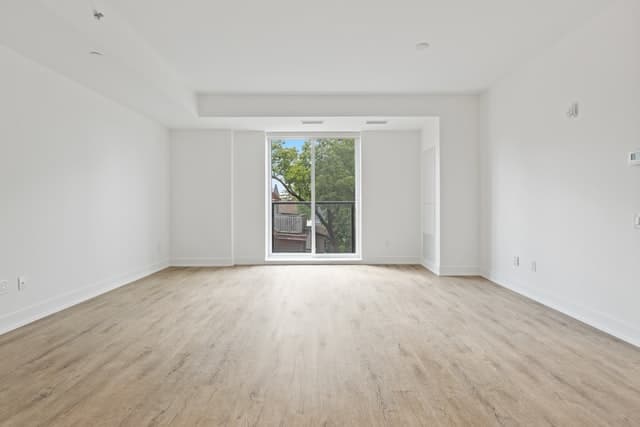
While the law can vary depending on your state, in most places a person is considered your tenant if they have paid rent or agreed to pay rent to live somewhere. This means that a written lease isn’t necessary in many areas for a person to be considered a tenant, as the agreement can be oral.
In most states, an agreement of this type will default to a month-to-month agreement. What this means is that either party can end the agreement with proper notice, with or without reason.
If you’re a landlord that has a tenant without a lease, that doesn’t mean you’re out of luck when it comes to evicting them. A person doesn’t have indefinite permission to live in your property just because there isn’t a written lease.
Whether a person has a lease or is a tenant-at-will will dictate when you end the tenancy and how much notice you need to give. If a tenant chooses not to leave by the time outlined in the notice, you might have to proceed with the legal process of evicting them.
For more information about evictions, check out this article about how to evict someone from your property or home.

It’s essential to understand that there are specific rules and procedures that must be followed when evicting a tenant that differs between states. While it is understandably distressing to have tenants in your property that won’t leave, taking the matter into your own hands will likely mean you’re breaking the law and can cause you a lot of legal and financial trouble. Some examples of this type of action include:
If you try and illegally remove or evict someone from your property, a tenant will have the right to take legal action against you. In some states, there is a certain amount of money that tenants can sue for. Additionally, you might have to pick up the bill for your tenant’s court costs and attorney’s fees if they are successful in their suit. They also might be awarded the right to remain in your property.
When you are attempting to end a tenancy period early, whether there is a lease or not, it’s important to understand that there are only a handful of legal reasons to justify this action. While there are going to be differences in laws state by state, some reasons that you can usually lawfully end a tenancy early include:
In some states, asking tenants to move out in order for you to move into the property might also be legal.
There are also a number of unlawful reasons that landlords ask their tenants to leave a property. It is very important that you don’t ask a tenant to leave your property or follow through with an eviction based on an illegal justification.
Some examples of unlawful reasons for terminating a rental agreement early include:
Attempting to illegally evict a tenant can put you in a very bad position legally and financially, even if you feel fully justified in doing so.
For month-to-month agreements in most places, a landlord can give you notice to quit without offering a reason why they want you out. (NJ, NH, and most rent-controlled cities are notable exceptions, where "just cause" is required for termination.) However, they need to give you the appropriate amount of notice before you are expected to vacate the property.

Before we move on to more specific circumstances, let’s run through the general steps for evicting a tenant without a lease.
Before you even think about starting the eviction process, you will need to send out a written Notice to Quit. This is a notice that is demanding that the tenant vacates the property by a specific deadline. Your state and municipal laws will outline the specific circumstances in which you can issue a Notice to Quit, including:
If your state law dictates that an oral rental agreement is a month-to-month by default, or, if you have a month-to-month written agreement, you generally need to provide a thirty-day Notice to Quit. Again, though, the precise amount of time will vary by state.
If a tenant hasn’t paid rent, how long you have to wait before giving the Notice to Quit or starting an eviction proceeding will depend on state laws. The following link offers a useful table on the state laws on termination for nonpayment of rent.
When you send a Notice to Quit will depend on the reason that you are asking the tenant to leave the property. In almost all states and cases, tenants need to be properly served the Notice to Quit at least three days before you’re allowed to file for an eviction. It isn’t uncommon to be required to serve a tenant with a Notice to Cease before you're legally allowed to send a Notice to Quit.
Once you’ve sent the Notice to Quit, one of two things will occur.
If the deadline listed on the Notice to Quit you gave your tenant has come and gone, the next step is to file for an eviction hearing. In some places, you can file and submit evidence online, while in others you’ll need to go to your local courthouse.
A hearing date will be scheduled once the court reviews the information you filed. Both you and the tenant will receive notice of the hearing date.
At the hearing, you’ll need to state your case including the rental agreement you had with the tenant, why the tenant needs to leave the property, and when and how you sent notice.
The tenant will also have the opportunity to explain why they believe they should be able to stay in the property.
A judge will ultimately decide to rule in favor of either you or your tenant. If either of you doesn’t go to the hearing, it’s common for the decision to be made in favor of the present party.
If you win your case, you still aren’t able to take the matter into your own hands and force the tenant off the property. In most places, the authority for executing an eviction falls with local law enforcement, who will physically remove the tenant from your property if necessary.
There are also rules about how you deal with abandoned property left behind by tenants. Before you haul over a dumpster and load it up, make sure you understand how long you need to leave the property and if there are requirements for storage and notice in your location.

So far, we’ve been talking about evicting people from your property with the assumption that you have a written or oral rental agreement of one kind or another.
However, what if you don’t have an agreement of any kind with the person in your home or apartment? What if they’ve been squatting on your property?
Sometimes, tenants turn into squatters when they stop paying rent but don’t leave the property. In other instances, a squatter might be someone that broke into a vacant property you own and has started living there.
The process of evicting a squatter isn’t terribly different from evicting a tenant. While it might seem like you should be able to use whatever means necessary to remove someone that is unlawfully staying at a house you own, it’s important to follow the law to avoid legal trouble that could ensue.
You need to provide notice to someone that is squatting in your property. There are different rules for each state and sometimes laws specific to municipalities regarding how much time you must allow between giving the Notice and filing for eviction.
When enough time has passed based on your state laws, you can file an eviction suit. If you receive a court order to remove the squatter, you can use this to have the authorities remove them from the property.
Another instance when you might need to evict someone that doesn’t have a lease is if you have an informal agreement with someone that is living in your primary residence. This might mean you’re renting a room to someone or could even apply in cases where a family member has overstayed their welcome but is refusing to leave.
The process here is very similar to the one you would follow if you had a rental property and tenants without a lease. However, it can feel a lot different because you likely have more of a relationship with the person that is living in your home. In the case of the individual being a family member or a close friend, this type of situation can be deeply troubling.
The first step, of course, is to talk to the person and tell them that you would like them to move out (so long as doing so doesn't put you in danger.) If they make it clear that they aren’t going to leave, though, you will want to send out a notice to quit. If they still don’t move out, you’ll want to follow the proper eviction proceedings in your state.
An important distinction to make, though, is if someone is a guest or a tenant. If a guest has overstayed their welcome, the legal avenue you have to remove them from your property is calling local law enforcement because they are technically trespassing. This isn’t as easy as it sounds, however, because cops are often wary of getting involved in these situations because they don’t have any certain way of knowing whether or not they are actually tenants. If the guests are actually tenants, a formal eviction suit will have to be filed and it isn’t a simple instance of trespassing.
How long the eviction process takes from start to finish has a lot to do with which state you’re in. In the quickest states, an eviction might take as little as two weeks. In the slowest states, it might take three months or more.
In addition to the state you’re in, some additional factors that influence how long an eviction takes include:
The general steps involved in an eviction include:
A number of things can slow down the eviction process. Here are some of the most common culprits for an eviction taking longer than usual:
Like many other details related to eviction, the final bill for the cost of eviction will vary depending on which state you're in. Let’s take a look at the general costs of eviction to get a sense of how much you should expect it to set you back.
There will be court fees in order to file the eviction claim. The average cost for filing an eviction is roughly $50, but this can vary by state. Your court fees can go up if the tenant contests the eviction and even more so if the trial drags on for an extended period of time.
The biggest chunk of your bill when evicting a tenant is going to come in the form of legal fees. For an uncontested eviction, you should expect your legal fees to be at least $500. In general, the complexity of the case will directly relate to how much it costs to have an attorney on your side.
You’re likely greatly relieved if you won your eviction suit, but the process isn’t over yet (nor the costs.) If you get lucky, the tenant will leave right away and give you the keys back. If they don’t, you’ll have to involve local law enforcement.
The cost of involving the sheriff’s office varies depending on your location. To hire them to serve notice, often costs somewhere between $50 and $400.
Another major cost of eviction is the rental income you’ve lost over the course of the debacle. The most common reason for evictions is the nonpayment of rent. Considering that it often takes about three months to get a tenant legally removed from your property, this might just be the single most expensive part of the process.
One of the ways you can assess the value of a rental property is by using projected rent. Check out this article to learn how to calculate property value based on rental income.
If you’ve had a tenant that refused to move out despite receiving notice and losing the eviction suit, chances are they aren’t leaving the property in the best of condition. This means that you’ll probably have to do some deep cleaning and repairs to the place before renting it out again.
How much this costs you will obviously vary depending on the type of damage done and the state of the property.
In addition to the costs listed above, there are a number of other fees and costs you’ll want to keep in mind.
First of all, you’ll want to replace the locks. There’s no reason to assume that there isn’t still a key or two floating around out there for your rental, and it’s not worth taking the chance that a tenant could try and move back in after having gone through the trouble of a formal eviction. This will probably cost somewhere between $150 and $300.
Secondly, you might be incurring travel expenses to deal with the eviction depending on whether the property is local to you or remote.
Third, you’ll have to factor in the costs of finding a replacement tenant.
Finally, the amount of time you spend dealing with or worrying about this issue is also a cost. Not only does dealing with an eviction mean that you’re not spending your time in more productive or enjoyable ways, but it can be incredibly stressful. The reality is that there can be a health cost to eviction in addition to monetary costs.
Wondering how profitable a prospective property could be? Learn how to calculate ROI on rental property here.
You might have heard of “cash for keys” in instances where a homeowner is facing foreclosure. However, this can also be an incredibly useful tool for landlords and real estate investors.
Cash for keys is an agreement between a landlord and a tenant where the landlord agrees to give the tenant a certain amount of money in exchange for them vacating the property.
The idea of giving your most troublesome tenant money to leave the property might make your blood boil, but it’s worth considering how much time (and potentially money) this could save you versus going to eviction court.
It’s very important to get the cash-for keys agreement in writing to ensure that it is a legally enforceable agreement. The tenant should sign this agreement. In the case that they don’t move out when they agree to, you can use this document in an actual eviction process.
The state and city you live in will have a big impact on the timeline of the eviction process you go through. Let’s look at the states with the most landlord-friendly eviction laws.
If your tenant doesn’t pay the rent in Colorado or violates the terms of the lease, you only have to give a three-day notice to fix the situation on the first offense. If the problem repeats itself, the landlord can give a three-day notice without the option to remain in the rental even if the problem is fixed.
Certain violations of a rental agreement are considered “identical to cancellation” in South Dakota. If a tenant breaks the rental agreement for certain offenses, the landlord can give a three-day notice to move out without any opportunity to rectify the situation.
Landlords can begin the eviction process the day after rent was due in Georgia. The tenant might have the option to pay the rent they owe before the court date if this is only the first time they’re late. If it’s their second offense, though, the landlord can issue a quit notice.
The laws in Montana regarding eviction are actually pretty confusing because they offer different time frames depending on the violation. In general, though, the laws lean in favor of landlords in these cases.
Landlords can notify tenants of an eviction in person, in writing, or over the phone in West Virginia. There also aren’t any set notice times regarding the fact that eviction is going to occur.
In certain states, the eviction process is going to take a lot longer than in others. Let’s look at some of the states with the most tenant-friendly eviction laws.
The landlord-tenant laws in Maryland seem to favor the landlord in some instances and the tenant in others. For example, landlords can file for eviction the day after rent is late. However, a tenant can usually pay the late rent in full at any time before the eviction is complete and bring the process to a halt.
If a tenant violates the rental agreement, though, a landlord has to give a tenant thirty days to vacate before starting eviction proceedings.
For tenants on a lease, landlords are able to file for eviction as soon as the rent is late. Tenants then receive a letter with a deadline from the court. They’re in the clear if they are able to pay the rent by the deadline.
People on a month-to-month agreement are given ten calendar days to either move or pay before the eviction process begins.
In Massachusetts, if a landlord tries to remove a tenant’s belongings or enter their rental when he isn’t allowed in order to speed up the process, he can face fines and even up to six months of jail time.
In Pennsylvania, tenants have ten days to pay the rent after missing a payment before the eviction process can begin. Violations of a year-lease mean that the tenant must be given a thirty-day notice to vacate before eviction. If a tenant doesn’t have a lease, the notice required is fifteen days.
Tenants have to be given thirty days' notice to move out if they break the terms of a lease or don’t pay rent on time before the eviction process starts. They also have the ability to stop the eviction if they fix the issue in fourteen days.
Vermont is one of the states that are friendliest to tenants. Tenants have fourteen days to pay late rent and thirty days to move if they violated the terms of a lease. Even severe violations of the rental agreement result in the tenant getting a fourteen-day notice.
Owning rental properties is a lot of work, and the thought of having to deal with eviction suits can be enough to put you off the idea altogether.
The type of property you purchase and how seriously you take the tenant screening process can go a long way in helping to avoid an outcome where you have to evict someone. After all, a lot of people have no interest in remaining in a property where the owner doesn’t want them, and even fewer want to have an eviction on their record. If you aren’t careful about where you buy property and who you rent them out to, though, you could find yourself constantly dealing with eviction cases.
There are a lot of factors that should inform your choice of rental property, one of which should absolutely be your risk tolerance for dealing with issues like evictions. For some landlords, this type of thing is like water off a duck’s back. For others, though, it means sleepless nights and a lot of stress.
Of course, you’ll need to make sure that any property you choose is helping you meet your financial goals, whatever they may be. You can use our rental property calculator to make ensure that all the numbers add up in your favor.
When a person, whether they are a guest or a tenant, won’t leave your property when they have been asked to, it can be incredibly distressing. Learning how to evict someone from your property or home as it is outlined in your state laws is essential to ensure that you are following the law.
If you are a landlord that is evicting a tenant with cause, there are specific procedures you need to follow. If you don’t follow these procedures, a tenant can mount a defense against the eviction and you might not win the suit.
In cases where a house guest has overstayed their welcome, you will need to follow a different course of action.
Let’s take a look at how to evict someone from a property, whether they are a house guest that has overstayed their welcome or a tenant that refuses to move out by the deadline outlined on the notice of termination.

An eviction is a legal process through which a tenant can be removed from a property by a landlord. Evictions can happen for a number of reasons, but one of the most common causes of eviction is lease violations.
The laws guiding eviction tend to be fairly similar, but the specifics vary depending on which state you’re in.
Landlords aren’t allowed to evict a tenant without a reason that is considered valid. The state where the property is located much legally recognize the reason as valid in order for the eviction to be legal.
The reasons a tenant can be evicted should be outlined in the lease paperwork. Some reasons that could be listed include:
Sometimes, a tenant will be evicted for reasons that don’t have anything to do with their behavior. A landlord can sometimes evict a tenant if they want to renovate it in a way that means the tenant can’t occupy it or if they want to live in it themselves.
If a landlord wants to convert a building into a condo or another type of cooperative, or if they want to demolish it, they will typically need to get approval from the government.
The reasoning behind an eviction can vary depending on the eviction laws in the state the property is in, how the landlord is allowing a tenant to use a property, and the type of property the tenant is renting.
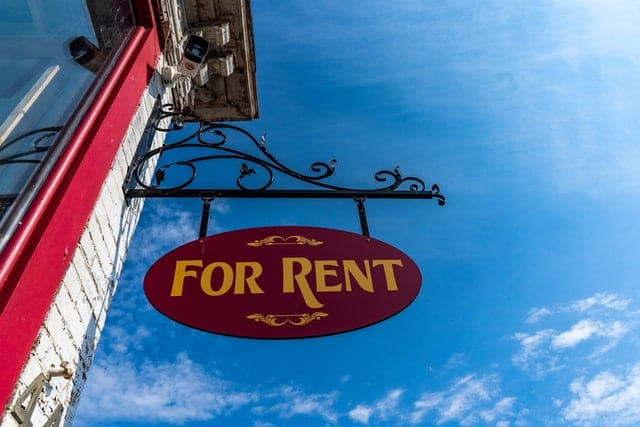
When you rent an apartment from a landlord to live in, it’s quite clear that you are a tenant. However, sometimes it isn’t as straightforward whether or not a person is considered a tenant. This is important because the proper legal process of evicting or removing someone from your property will depend on whether they are a tenant or not.
A person is generally considered a tenant if they have agreed to pay rent to live somewhere, whether or not the payment has actually been made.
This means that even if a person only sleeping on a couch or using a part of a home, they are considered a tenant if they pay rent or have agreed to pay rent.
While most people pay rent in the form of money, people might also pay in work or trade.
A person that hasn’t ever paid money, given you anything of value, performed work for you, and never agreed to do any of those things in exchange for a place to stay is most likely not legally considered a tenant.
However, if they have agreed to pay or otherwise compensate you for spending time in the property, even if they didn’t hold up their end of the bargain, they are considered a tenant in most cases.
While landlord-tenant laws are commonly similar between places, there can be variations in the details so it’s important to become familiar with any laws on the books in your state and your city.

Even if there isn’t a written lease, a person can become a tenant. A written contract isn’t necessary to create an agreement to rent a property.
A verbal agreement is enough to create a landlord-tenant agreement. The way two people behave can also create a landlord-tenant relationship. For instance, if one individual gives the owner of a property money regularly, and the property owner receives and accepts this money, this could be legally understood to be a landlord-tenant relationship.
If you have a written agreement with someone that’s living in your home that says that they are not a tenant, it’s worth understanding that they still might be considered a tenant legally regardless of what is written in the contract if they are paying rent.
You can find the requirements to end a tenancy within the laws of your state. The precise procedure varies by state in terms of how termination notices and eviction papers are written as well as served.
In general, there are three different types of termination notices you can use when you want a tenant out of your property.
The first is known as pay rent or quit notices, which are usually given by landlords to tenants when they have failed to pay the rent. In most states, the landlord will give the tenant somewhere between three and five days to either pay the rent they owe or “quit,” i.e., move out.
The second is known as cure or quit notices. These are commonly given to tenants by landlords when the tenant violated a condition or term of the rental agreement. For example, if someone kept a pet even though there was a no-pet clause in the lease or they broke the rules repeatedly about excessive noise.
A tenant typically has a specific amount of time in order to “cure” (i.e., fix) the violation. If they don’t correct the lease violation, they need to move out, or else they could be at the receiving end of an eviction lawsuit.
Unconditional quit notices are the third type of notice for termination with cause. These are the harshest of these notices, as they order tenants to move out without any opportunity to correct a lease violation or pay the rent. A tenant usually has to have behaved in certain ways in order to receive this type of notice, such as:
Landlords aren’t always required to let tenants fix their lease violations or pay the rent. Whether or not landlords have to give tenants this opportunity depends on the state. In states where landlords don’t have to give tenants this chance, landlords have the choice to use unconditional quit notices immediately in the eviction process.
If a tenant receives notice but doesn’t make the necessary changes, such as paying the rent or fixing the lease violation by the deadline listed in the notice, the landlord can begin the process of filing for an eviction lawsuit.
When a landlord doesn’t have cause to evict a tenant, they usually aren’t able to legally terminate the tenancy for an individual that has a fixed-term lease.
For short-term rental agreements such as a month-to-month, however, landlords have the ability to terminate the agreement without cause. In these instances, the landlord just has to provide a specific amount of notice to the tenant, which is outlined in the state laws.
If your property is in a place that has rent control laws, however, you might not be able to terminate shorter-term rental agreements without cause.
Considering buying a foreclosed property as an investment? Before you do, take a look at our article about what makes buying foreclosed property risky.
If you’ve begun an eviction suit against a tenant, it’s worth understanding the possible defenses they might use and what this means.
The eviction process could be weeks or even months longer if a tenant decides they want to mount a defense against the suit. In an effort to dismiss or delay the case, the tenant can argue that there were mistakes made in either the eviction complaint or the notice. Additionally, they can point to improper delivery of either of these documents.
When a court is deciding on an eviction suit, they will often take the past action of a landlord into account. They will be less likely to find in favor of eviction if they find that a landlord evicted the tenant out of retaliation against the tenant or if the landlord failed to keep the property habitable and safe.

If you go through the eviction process and you win the suit, the court will issue a judgment for possession of the property. In some cases, the tenant will even be ordered to pay you any rent they have yet to pay.
Even if you win the eviction suit, though, you can’t simply turn off the utilities and lock a tenant out in order to get rid of them. There are state and local laws that outline how tenants can be physically removed from a property, and landlords need to follow these to stay within the bounds of the law.
In many cases, this will mean that you’ll need to enlist the help of a local law enforcement officer in order to physically remove an evicted tenant from your property.
When you’ve evicted someone from your property and they’ve left behind personal property, you’ll want to turn to your state laws to understand how you can dispose of the property legally. In a handful of states, once the tenants move out you can freely dispose of any property that they leave behind. However, even in the states where it is legal to throw away a tenant's property after they have moved out, it’s still required that you only get rid of personal property belonging to a tenant when it is abundantly clear that the tenant intends to turn the place over to you and has left permanently.
Many state laws require that you follow specific procedures of storage and notification when you’re dealing with abandoned property.
Are you wondering how to figure out how much your property is worth based on the amount of income you receive in rent? Take a look at our post about how to calculate property value based on rental income.
Someone who was once a guest can become a tenant, technically, through both the actions of the property owner and the actions of the guest.
Let’s say, for example, that you have a friend that is in need of a place to stay for a period of time. If the individual offers to help with expenses while they’re staying there and gives you some money, they actually might legally be considered a tenant by your state laws. This can be the case even if you haven’t made a written agreement.
Guests can also become tenants through actions like:
If you’re a landlord, you should also be concerned with how a guest becomes a tenant. For example, if someone is letting their romantic partner stay over for a few nights occasionally, they are most likely a guest. If they’ve moved over permanent items such as furniture, though, they are moving into the territory of being a tenant.
College students that are returning home for a weekend would be considered guests. However, if they return home to take a semester off or for the entire summer, they become tenants.
It’s one thing to try and evict someone with whom you have a clear-cut relationship as landlord and tenant. However, things can get murkier when the line between guest and tenant is blurred.
As discussed above, a tenant will have agreed to pay rent and commonly has a written or verbal rental agreement. A house guest, on the other hand, is someone that is only temporarily staying at a property without paying rent.
Different states have varying laws in terms of how long a guest must be in a home before they are considered a tenant. If you have a friend, relative, or guest that has overstayed their welcome, it can be tricky to figure out how to get them out of your house. If you’ve asked them to leave and they won’t, they are technically trespassing on your property.
If there is a guest in your home that won’t leave despite having been asked to leave, they are technically committing the crime known as trespassing. The situation can get even more complicated, unfortunately, if you involve the police and they understand the guest to be a tenant.
Different states have laws that outline the definition of trespassing. In most states, though, it refers to the action of entering or remaining on a property without the permission of a resident or the owner.
Even if you initially told someone that they could stay at your home, they are trespassing if they don’t leave when you ask.
There are often different levels or degrees of trespassing in a number of states. Depending on the situation and the type of property, there are usually increasing penalties.
The first step, if you haven’t done so already, is to communicate clearly to the individual that they are no longer welcome. It can be tricky to tell relatives or friends that you don’t want them in your house anymore, but you will need to make it explicit that you want them to leave if you have previously given them permission to stay at your home. If you haven’t made it clear that they aren’t welcome anymore, and you told them at an earlier time they could stay, they might not be breaking any laws.
It’s important to be very clear when communicating to someone that you’d like them to leave your property. This is not the time for dropping hints and expecting that the other person should “know” that you want them gone. You will want to explicitly tell them that you want them to leave the property.
If you’ve already made it abundantly clear that the individual isn’t welcome, it’s time to call the cops.
Having the police help remove an unwanted guest from your property can be more difficult than you might imagine. Because cops are reasonably concerned that a houseguest is actually a tenant, they are usually somewhat wary of getting involved in this type of dispute.
The police understand that if the houseguest is actually a tenant, the owner of the property needs to follow the legal procedure before the individual can be removed from the property.
Though the laws vary between states, landlords in most states have to terminate a tenancy formally through the proper delivery of a written notice. If the tenant doesn’t leave by the deadline that is outlined in the notice, an eviction lawsuit can be filed by the landlord. Only once the lawsuit has been won by the landlord can an individual be physically removed from the property by a law enforcement officer.
Guests are usually not considered tenants under most state laws, even long-term guests. The problem, though, is that cops don’t have any way of knowing one way or another whether the individual is a tenant or a trespasser. Because the police officer could find themselves in trouble legally for removing a tenant from a property wrongfully, involving the police in an unwanted houseguest dispute isn’t always as helpful as you might hope.
While there is a formal process for evicting tenants from property, there isn’t a formal process for removing unwanted guests from your home.
The first step is always to clearly communicate to the person that they must leave the property. If this is a friend or a relative with whom you want to preserve a relationship, try to sit down with them and calmly discuss the situation.
For some people, confronting an unwanted houseguest verbally is too uncomfortable. In these instances, you can also give them a written notice. It’s fine to send this communication as an email, but however you deliver the notice, you’ll want to make sure you keep a copy for yourself.
In this notice or in your conversation, you’ll want to set a clear deadline that you want them out by.
If your unwelcome guest doesn’t leave by the deadline you set and doesn’t seem to intend to, you might choose to change the locks on the home. The primary concern at this point, though, is your safety. The fact that a person is unwilling to leave your home when asked is certainly unnerving, and it’s important that you don’t do anything that puts you or anyone in your household in danger.
If a houseguest becomes threatening or violent, you’ll want to call the police. While guests will usually take the hint and move out when a property owner asks them to, sometimes they act irrationally and turn violent. Depending on the situation, you could file for a restraining order or a protection order that makes it so the individual is not to have any contact with you.
If a guest remains on the property and ignores your notice, you might be able to file an eviction lawsuit depending on the state your property is in. If the person isn’t going to leave on their own, this might be the best option because once the court issues an order for the person to leave the property, the individual can be physically removed by local law enforcement.
If you’re a landlord, having a firm grasp of the landlord-tenant laws in your state and city is vital. While receiving income from a rental property is a great way to make passive income, being a landlord can quickly turn into a nightmare if you are dealing with uncooperative tenants that violate the terms of your lease or refuse to pay rent.
Even if you aren’t a landlord and simply a homeowner, it’s worth understanding what it means to allow a guest to stay in your home. While it can be distressing for someone that you consider a friend to overstay their welcome, it’s important to follow the procedures outlined above.
If you’re considering owning rental property, it’s important to understand both the pros and cons of being a landlord. There can be quite a bit of variation in terms of landlord-tenant laws between states, and some places have laws that are more landlord-friendly than others. In our recent post about the best places to buy a rental property, we outline some of the most landlord-friendly states in the country.
Are you looking at a prospective rental property but aren’t sure if it’s a good investment? It’s essential to run all the numbers before buying a property to make sure that it will help you meet your investing goals. Check out our rental property calculator to ensure that the property you’re looking at will produce the outcome you’re looking for.